so, as is our consecrate duty as a literary and culture website—though with full awareness of the potentially bootless and infinitely contestable nature of the task—in the total weeks, we ’ ll be taking a look at the best and most crucial ( these being not always the same ) books of the ten that was. We will do this, of course, by means of a variety of lists. We began with the best debut novels, the best short narrative collections, the best poetry collections, the best memoir, the best try collections, the best ( other ) nonfiction, and the best translate novels of the ten. We have immediately reached the one-eighth and most unmanageable list in our serial : the very best novels written and published in English between 2010 and 2019 .
You may be shocked to learn that we had a hard meter deciding on 10. so, being captains of our own destiny, we decided we were allowed to pick 20. .. plus about that many dissents. We did not allow reissues, otherwise you had better believe this list would include The last Samurai, Speedboat, and Who Was Changed and Who Was Dead, among a robust master of ceremonies of others. We besides, for this tilt, discounted novels in translation, as they got their very own number last workweek, and including them would have necessitated a tilt doubly a retentive. ( My beloved Sweet Days of Discipline, surely in the top ten novels I personally read this ten, is doubly ineligible, but fortunately I besides write these introductions. )
Reading: The 20 Best Novels of the Decade
now, for the last time : the following books were chosen after much argument ( and several rounds of voting ) by the Literary Hub staff. Tears were spilled, feelings were hurt, books were re-read. As always, free to add any of your own favorites that we ’ ve missed in the comments below .
***
The Top Twenty
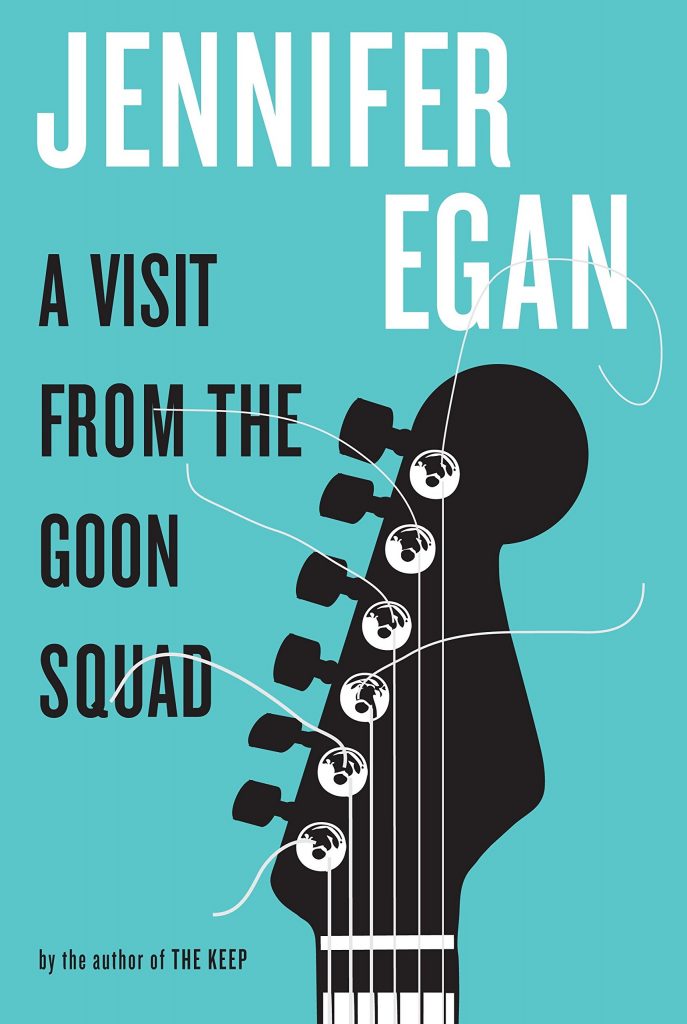 Jennifer Egan, A Visit From the Goon Squad (2010)
Jennifer Egan, A Visit From the Goon Squad (2010)
There are some moments from A Visit From the Goon Squad that I won ’ deoxythymidine monophosphate forget. In one chapter, a former PR ace named Dolly is tasked with reviving the populace persona of an african authoritarian known as “ The General ” with the help of a B-list actress named Kitty Jackson. Kitty ’ south caper is to stand next to The General in a photograph, but she ends up asking excessively many questions about a genocide and gets thrown into prison. Months late, it turns out, The General ’ s government becomes a majority rule, Kitty is freed, and Dolly opens a sandwich patronize. This strand of Egan ’ mho polyphonic, curious, and frequently affecting book encapsulates some of her sarcasm ’ s recurring ideas. In Goon Squad, a book with a big cast of characters set in a period roughly spanning the belated 1970s to the 2020s, shifts in time are constantly jarring—they can destroy the consistency, corrupt memory, and smear processes of deepen. nominally centered on the american english celebrity industrial complex ( particularly rock ‘n’ roll ’ n ’ scroll in the Bay Area ), Goon Squad is besides very much about media “ spin, ” fragmented perspectives, illusive identities, and aimless materialism in a capitalist society. Though the premise may seem to indicate otherwise, the bible is decidedly disbelieving of nostalgic impulses. “ Time is a hood, ” one of Egan ’ s characters says. The past is nothing if not the basis of contemporary disenchantment with its promises—promises of smasher, fame, family, and the attainment of early icons. Goon Squad earned Egan well-deserved plaudits, including the 2011 Pulitzer Prize and the National Book Critics Circle Award, and cemented her status as one the twenty-first hundred ’ s most insightful ( and formally experimental ) american writers. –Aaron Robertson, Assistant Editor
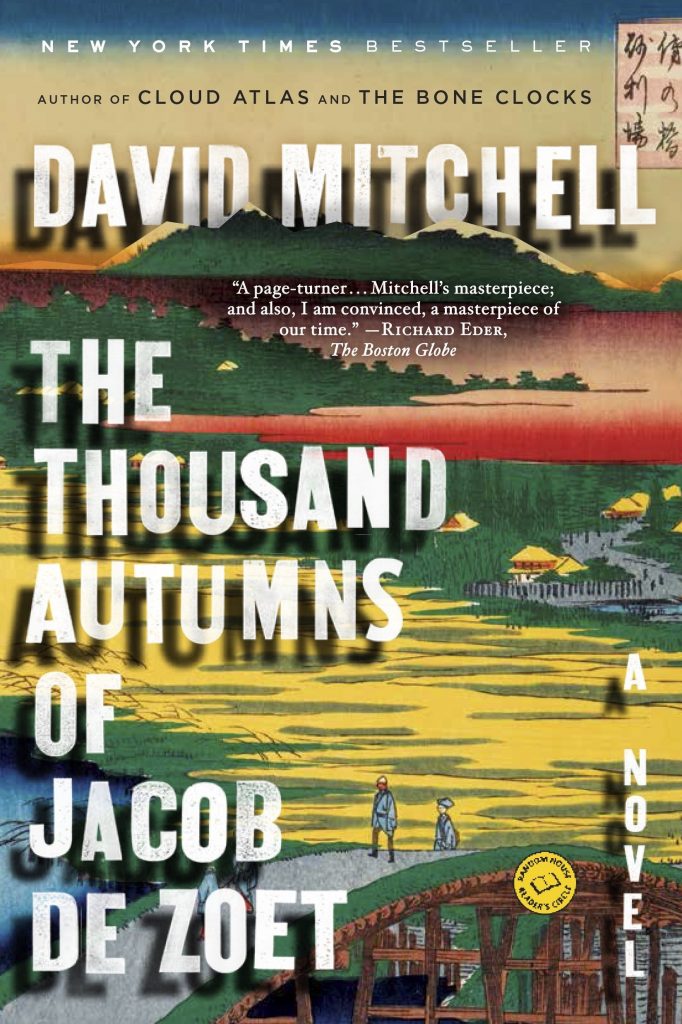 David Mitchell, The Thousand Autumns of Jacob de Zoet (2010)
David Mitchell, The Thousand Autumns of Jacob de Zoet (2010)
It is easier to conjure the intellectual-literary atmosphere of an era when it is 30 years ’ past than when it is a mere decade ago. It is hard to see 2010 veracious now, as we wait for time and the canon to dependable the lens, but I have a very clearly sense-memory of disclosure and exhilaration as I sped through David Mitchell ’ s epic-historical ghost story, The Thousand Autumns of Jacob de Zoet, wondering if the spirit of Robert Louis Stevenson had momentarily taken possession of Haruki Murakami. here was a admonisher that the world of a novel—in this event, a identical detailed render of an 18th-century dutch trade post in the larboard of Nagasaki—can be fuller, more vivid, than our own, that it can exist as a conservatory for the subscriber ’ s moral resource .
It is unmanageable to say what another 25 years will make of The Thousand Autumns of Jacob de Zoet. In the context of Mitchell ’ s more recent novels, and their space-operatic excesses, the plot of De Zoet seems worryingly baroque, show-offy, even. But it is intelligibly the employment of the lapp writer who gave us the near-perfect coming-of-age novel, Black Swan Green, its speech similarly precise and unexpected, all in help of a story that seems somehow to tell itself, a genuine history that never quite happened. –Jonny Diamond, Editor in Chief
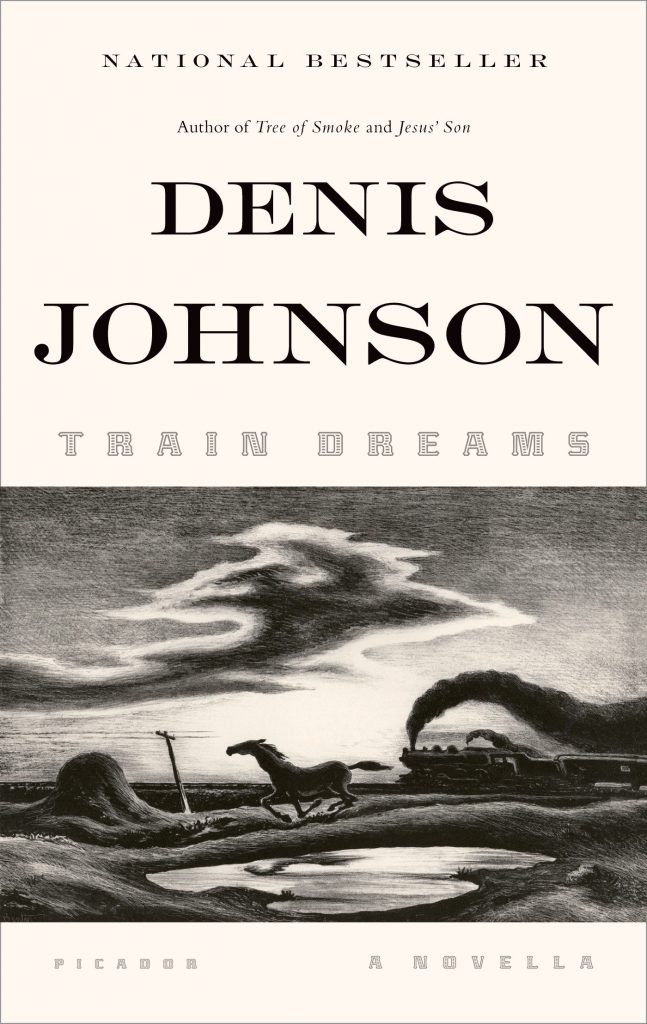 Denis Johnson, Train Dreams (2011)
Denis Johnson, Train Dreams (2011)
If I was tasked with proving that literary awards are a barbarous joke and that life is nothing but a bare and meaningless slog toward the grave, Exhibit A would be what I have dubbed The Great Pulitzer Prize for Fiction Travesty of 2012. 2012 was, of course, the year the Pulitzer board ( not the jury ) decided that no book published in the previous twelve months merited the most prestigious honor in american letters, despite the fact that the three of finalists included Denis Johnson ’ s hallucinatory masterwork Train Dreams, ampere well as Karen Russell ’ s lushly brainy debut novel Swamplandia ! and David Foster Wallace ’ second unfinished opus The Pale King. ( An explanation as to how this happened was proffered by novelist and 2012 jury member Michael Cunningham in a rather fantastic letter to the New Yorker in the wake of the non-decision ). Train Dreams may well be the twenty-first century ’ s most perfect novelette ( he said, having of path read them all… ). It ’ s the incantatory story of a turn-of-the-century lumberman and railroad laborer, Robert Grainier, who loses his family to a wildfire and retreats thick into the woods of the Idaho panhandle as the country modernizes around him. Johnson ’ randomness spare, foreign, elegiac prose conjures a world that feels both ancient and ephemeral, full of beauty and menace and deep sorrow. As Anthony Doerr wrote in his New York Times review : “ His prose tiptoes a tightrope between peace and calamity, and beneath all of the novelette ’ s best moments, Johnson runs duplicate strains of tenderness and the threat of violence. ” An american epic in miniature, Train Dreams is a visionary portrayal of soul untethered from civilization, a world stoically persevering on his own hermetic terms in the face of impossible tragedy. A haunted and haunting reverie. –Dan Sheehan, Book Marks Editor
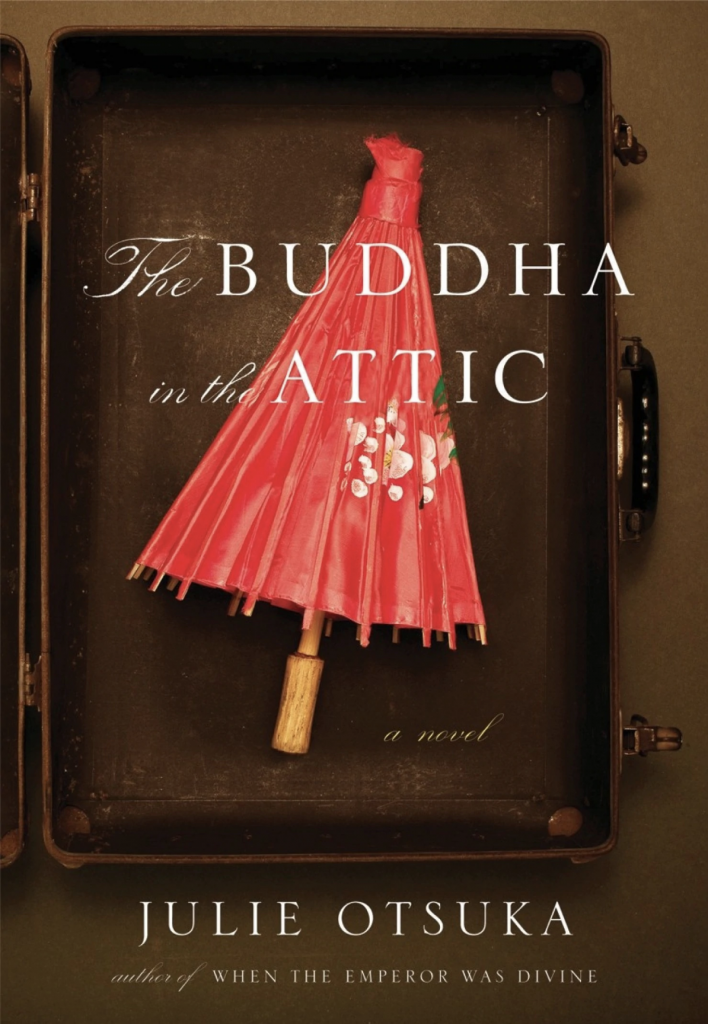 Julie Otsuka, The Buddha in the Attic (2011)
Julie Otsuka, The Buddha in the Attic (2011)
Julie Otsuka ’ randomness innovative ( and PEN/Faulkner Award-winning ) Buddha In the loft begins : “ On the gravy boat we were largely virgins. We had hanker black hair and flat broad feet and we were not very tall. Some of us had eaten nothing but rice gruel as young girls and had slenderly bowed legs, and some of us were fourteen years old and were still young girls ourselves. ” This is how we are introduced to our narrators, a group of japanese “ mental picture brides. ” We follow them as they immigrate to California. We watch helplessly as they meet the husbands they were promised to, as they attempt to assimilate to America and raise children across a cultural divide. The collective first person narration matches the topic matter beautifully ; it mimics the immigrant experience, the direction “ others ” are frequently seen as the same and the automatic chumminess and safety we might find among those who plowshare our stories. Slipping out of the shared “ we ” and “ most of us ” and “ some of us, ” Julie Otsuka creates a dizzy dislocation, a confusion of identity that serves the narrative well : “ …unable to remember our own names, not to mention those of our new husbands. Remind me one more time, I ’ m Mrs. Who ? ” Her time is faultless. just when you start to grow aweary of the collective voice, for good a sentence or two, she ’ ll give us an intimate detail, an individual life, to hold onto, and it always catches you off guard when she does, like a rule break : “ The youngest of us was twelve, and from the eastern shore of Lake Biwa, and had not so far begun to bleed. ” The specificity is heartbreaking. You can feel the purpose behind every choice ; so rarely does a book mesh style and topic then brilliantly. The most shatter snatch comes at the end ( SPOILER ALERT ! ) —when there is a sudden shift key in the narrative. The “ we ” abruptly becomes the egg white Americans who are left to tell the story, after their japanese neighbors are sent to internment camps. It ’ second cooling, and terribly accurate, the manner their voices are literally taken from them in this story. I ’ ve re-read this novel many times, trying to understand how it can encompass such a across-the-board setting of things. What Julie Otsuka has accomplished here is both an disingenuous, intimate portrayal of individual lives and a cutting indictment of history. –Katie Yee, Book Marks Assistant Editor
Although it came out in 2011, I read The Tiger ’ south Wife, the elegant inaugural novel by Téa Obreht, only recently. I found it stunning, so absolutely moving on its many levels. Obreht ’ randomness protagonist and narrator, a young doctor named Natalia Stefanovic whose animation is upended by the cryptic death of her beloved grandfather, is one of the most dulcet, engrossing storytellers I ’ ve encountered in my life ( she has learned well—her grandfather is one of the most dulcet, engrossing storytellers she has encountered in hers ). Her account remembers and aches for her love one in a way that is both so poetic and relatable ; she chiefly connects to his memory through a text, using his beloved replicate of The Jungle Book to try to solve the puzzle around his last days, equally well as his home life. I besides found The Tiger’s Wife to be very personal—Obreht was born in former Yugoslavia, and The Tiger’s Wife takes place in the Balkans, immediately after the war. My family, besides, is from former Yugoslavia ( where I spent much time, growing up ), and though my life in America ( and my age ) has removed me from deeply experiencing the region ’ sulfur tumult firsthand, I marveled and cherished how Obreht ’ s reserve performs the acts of both solicitation and memorial about the late scar and secede of this region—this region which has historically been scarred and splintered so many times. ( And it made me think of my own grandfather, another yugoslav narrator, with whom I spent much of my childhood dream of animals. ) “ Collection and remembrance ” are more than fluent themes of the novel, though—they comprise its methodology. Inspired by the format of The Jungle Book, possibly, but besides a culture that incorporates thus many legends and beliefs ( both Eastern and Western ), Natalia begins interweaving fables and stories and flashbacks in her story—connecting an older, superstitious, and charming populace and a bare, modern, and disillusioned age. She does this as a device for the reviewer, but besides because they keep unfurling in her own life as she learns her grandfather ’ s full moon story, and becomes, in a way, herself, inspired by the charming of it all. –Olivia Rutigliano, CrimeReads Editorial Fellow
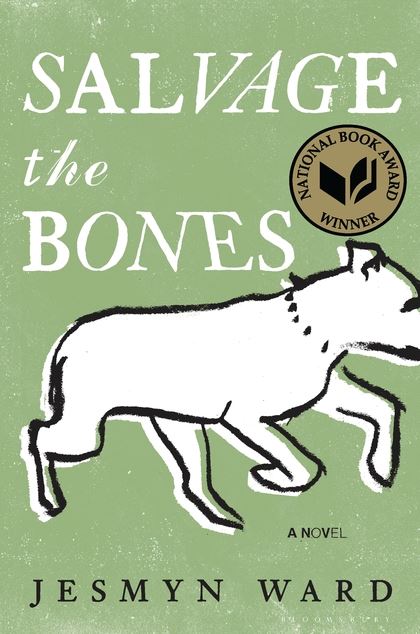 Jesmyn Ward, Salvage the Bones (2012)
Jesmyn Ward, Salvage the Bones (2012)
Most of what remains with me years after reading Jesmyn Ward ’ s second fresh is impressionistic. One of the final images in Salvage the Bones is of the 14-year-old protagonist Esche ’ s don roughing out the initial impact of Hurricane Katrina in the attic of their flooded house. They ’ ve been separated from the family pawl, China, and her litter of puppies ; Esche ’ s dad resolves to stay there until China returns. Ward ’ mho story is largely about caretaking ; the slenderness of the book and the small-scale—a beget and his children prepare for a hurricane that people are warning about—belie the enormousness of what Ward set out to do with this National Book Award-winning novel. We all have at least some sense of the black Katrina response and what it revealed about government infrastructure and myopia concerning communities of semblance in particular. Katrina is the costliest natural catastrophe in US history, and by the time Salvage the Bones was published, the long-run mental and fabric costs of the hurricane were in some ways easier to see, though besides largely lost in an over-saturated media commercialize. China and the puppies are not precisely decorations Ward includes, but in fact central to the identity of a inadequate black family in the fabricated Mississippi Gulf township of Bois Sauvage. China ’ s “ motherhood ” is a informant of potency for Esche, who is softly pregnant herself ; Esche ’ s older buddy, Skeetah, hopes to one day sell the puppies as fighting animals—a decision motivated by economic desperation preferably than callous detachment. Ward explicitly sought to remind readers of the dignity, suffer, and hopefulness of families of color amid one of the largest-scale disasters of our times. –Aaron Robertson, Assistant Editor
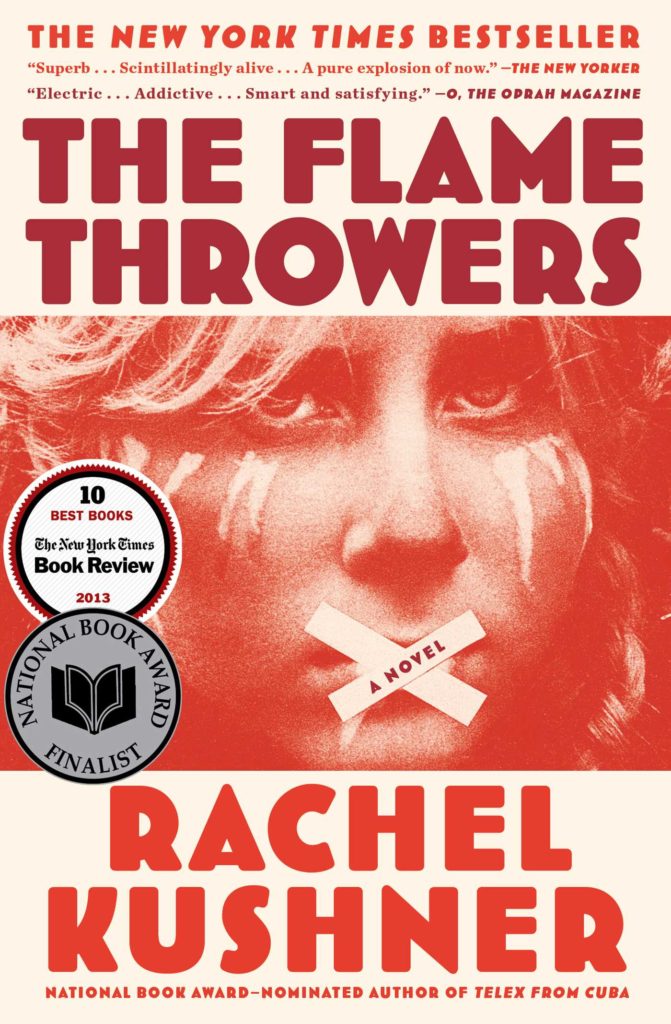 Rachel Kushner, The Flamethrowers (2013)
Rachel Kushner, The Flamethrowers (2013)
Rachel Kushner ’ south 2013 masterpiece has the advantage of being both epic in its historical sweep and highly, astutely specific in its characterization, notice, and ultimately, its aesthetic goals. The history is simultaneously excessively sprawling to do judge to in a few lines and disarmingly simpleton. A charwoman moves to New York City in the 1970s primed to create. She ’ s an artist. She ’ mho swept up in the circles of early artists and finds herself possibly besides much under the sway or influence of an older valet, a successful artist and the heir to an italian tire/motorcycle luck. The fresh is a lave of conversations remembered, urges subsiding and returning, impressions. Reno, as the protagonist is nicknamed, travels to the westerly strategic arms limitation talks flats, crashes a motorbike, challenges a accelerate record. then she ’ s in Italy, adjacent to extreme lavishness and wealth ; future she ’ second in the streets, caught up in riots and a burgeoning militant culture on a collision run with her by. There is, throughout, an eerie common sense of destiny, partially because we know she ’ sulfur passing through crucial modern historic epics, but besides because of the dreamlike decorate of Kushner ’ s prose. “ I was doing that thing the infatuate do, ” Kushner writes through Reno, “ stitching destiny onto the person we want stitched to us. ” In other moments, the write turns rock arduous and intuitive. A world spreads out before us, and before Reno, and we can ’ thyroxine avail but follow the path ahead, knowing that it ’ sulfur full of mistakes, cruelties small and boastfully, and pain. But there ’ second besides an electricity there. This is a book, ultimately, about art, that deeply human subject. –Dwyer Murphy, CrimeReads Managing Editor
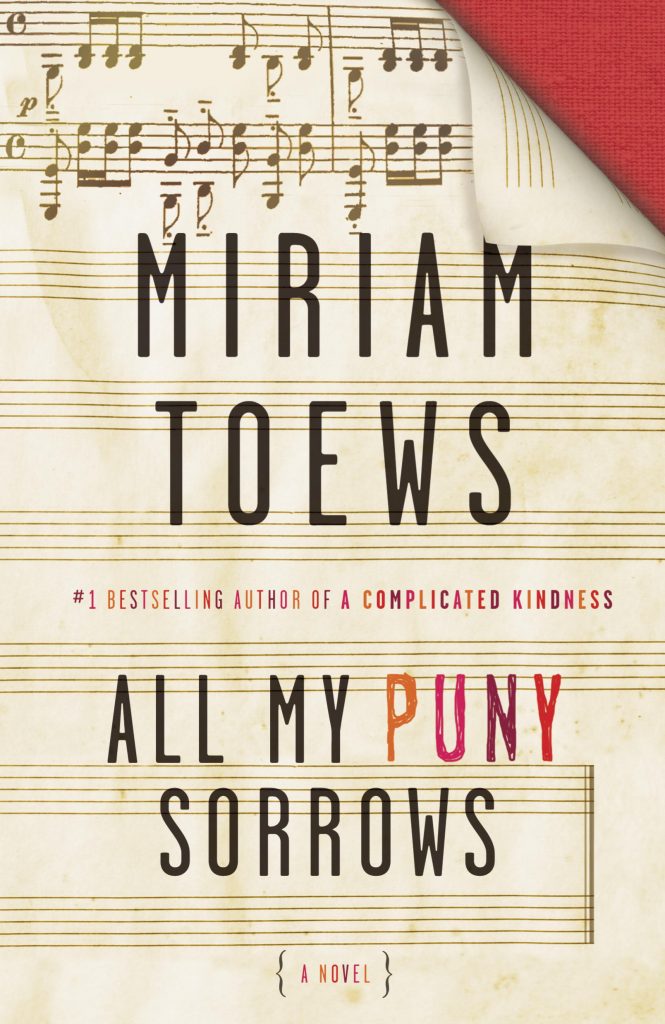 Miriam Toews, All My Puny Sorrows (2014)
Miriam Toews, All My Puny Sorrows (2014)
How rare is it to come across a novel that elicits a physical reaction from its reader ? All My Puny Sorrows runs the gamut of emotions. Miriam Toews will have you laughing out loudly one moment and sobbing on the underpass the next. Her fresh tells the report of Elf and Yoli, two sisters with an incredible bail despite living very different lives. By all external trappings, Elf is the successful baby. She is a world-renowned virtuoso pianist. She ’ randomness affluent and happily married. Yoli is not any of those things. alternatively, she is struggling with how to love person who no longer wants to live. And so here we find ourselves, in the room with these two inseparable sisters in the consequence of Elf ’ s suicide attack. The way Miriam Toews describes her gloominess is haunting : “ then Elf tells me that she has a glass piano inside her. She ’ s terrified that it will break. She can ’ thymine let it break. She tells me that it ’ south squeezed correct up against the lower right side of her abdomen, that sometimes she can feel the hard edges of it pushing at her skin. ” ( I read this novel months ago, and I still think of the glass piano frequently. It ’ s therefore memorable in its specificity ! It ’ s so wyrd and unique that it could only have come from the mouth of this wonderfully all-around, surprise character. ) But it ’ s not all grief ! It hits all the notes. Shown through some flashbacks to the sisters ’ Mennonite upbringing and cutting to their barbarous portray, the intimacies of their relationship are a saving deck, a sigh of stand-in. Miriam Toews has an auricle for dialogue. Elf and Yoli talk like flesh-and-blood sisters. The details are spot-on. At some point, they speak of their plans to “ chop wood, pump urine, pisces, play the piano, sing together from the soundtracks of Jesus Christ Superstar and Les Miserables, re-imagine our pasts, and wait out the end of the world. ” There ’ s a version of this floor, painted with less carefully crafted strokes, that comes out platitude. But Miriam Toews is a pro at teasing out the details that make the fib full and unexpected. –Katie Yee, Book Marks Assistant Editor
It is possible to read Jenny Offill ’ s second novel, Dept. of Speculation, in a day. In fact, it is more difficult not to, as you will not want to stop read once you ’ ve started. The first meter I read it, I remember being dazzled by the imprint : a progress of short circuit paragraph, sometimes continuous with those around them, sometimes apparently standalone, each one a jolt of intelligence or feeling. hera is the one everyone quotes :
My plan was to never get marry. I was going to be an art monster alternatively. Women about never become artwork monsters because art monsters only concern themselves with art, never mundane things. Nabokov didn ’ t even fold his own umbrella. Vera licked his stamps for him. The novel is filled with anecdotes like these, and besides sayings, or literary quotes, like this one, which I have written down in my notebook every prison term I have read this record :
What Rilke said : I want to be with those who know mysterious things or else alone .
The moment prison term I read it, I was heartbroken by the narrative, every piece of it : the writer who sacrifices ( besides much ? ) for her family, the wife whose husband has strayed, the charwoman rebuilding. It is the timbre of mind Offill creates that makes this novel thus extraordinary, that makes me want to live inside it .
The third base time I read it, I realized that this is one of the few novels that I find both formally stimulate and emotionally devastating—in a good way. Most writers can pull off one or the other, but Offill does it justly : she uses the form to slay you good. PS : For those, like me, who have read this book besides many times already, I am please to inform you that Offill ’ s forthcoming Weather is barely as bright and fantastic as Dept. of Speculation, but it swaps out marriage and swaps in climate change/existential malaise as its main concern, which makes it precisely the kind of book we need right now. –Emily Temple, Senior Editor
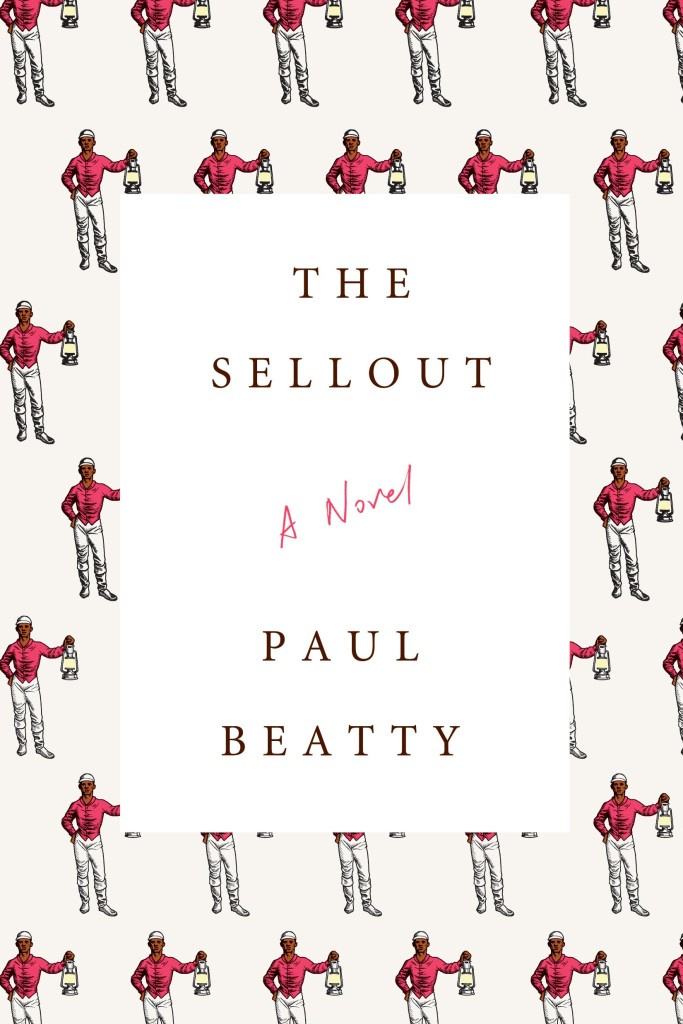 Paul Beatty, The Sellout (2015)
Paul Beatty, The Sellout (2015)
It ’ mho sturdy to sell me on a novel that ’ s not funny. To me, fabrication without temper is missing an substantive separate of the human have. Paul Beatty ’ mho Booker Prize-winning masterpiece is one of the funniest—and most human—novels I ’ ve ever read. not only that, it made me feel wholly vindicated for insisting upon drollery. The Sellout is so sharp you might not notice it ’ s cut you until you ’ ve already feeling faint. It ’ s a combination of laugh-out-loud drollery, preciseness social sarcasm ( rooted in a deep understand of history ), and literary enlistment de force. It ’ s so good it made me use the give voice “ enlistment de force. ” The mission of The Sellout ’ second narrator, a black homo, is to reintroduce ( official ) segregation to his rural neighborhood within inner-city Los Angeles after it is cryptically disappeared from the map. The novel appropriately begins with the narrator lighting a joint in the halls of the Supreme Court, where his re-segregation endeavor landed him. As Kevin Young wrote in his review, “ Beatty takes the same delight in tearing down the sacred, not so much airing dirty laundry as soiling it in front of you. ” But The Sellout celebrates a much as it torches. It is, in addition to being one of the capital satirical novels of the decade, and possibly of all time, a celebration of black in an allegedly post-racial era ( keep in mind, this was 2015 ). –Jessie Gaynor, Social Media Editor
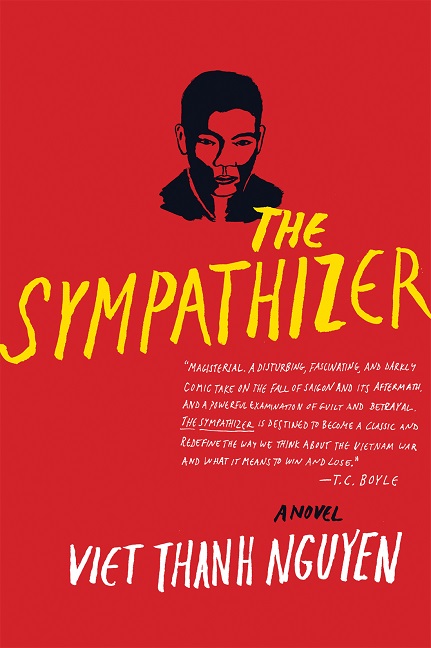 Viet Thanh Nguyen, The Sympathizer (2015)
Viet Thanh Nguyen, The Sympathizer (2015)
As a fresh, The Sympathizer is a churn, darkly comedian, propellant literary thriller set in the contiguous consequence of the Vietnam War, as a North vietnamese gram molecule keeps watch on the exiled South vietnamese government in Southern California—it is compulsive learn, arresting in its language, unforgettable in its imagination. But it is more than that. By plainly writing the words “ Vietnam War ” I am able to conjure an entire american mythology, the 40-year cultural by-product of sol much not-quite propaganda/not-quite art : long-haired protesters in the streets, Rustbelt grunts wading through steaming jungles, a flock of juddering choppers against an enormous alien sunday, broken men returning to a country that does not want them… This is the “ american ” version of the war, a narrative we ’ ve told “ ourselves ” that, while not particularly flatter, is as narrow and nearsighted as any campfire epic poem. thus let ’ s try this : The Sympathizer is an american english novel about an american War, a crushing and gratuitous conflict that created hundreds of thousands of refugees, new Americans ( we were all raw here, at some point ) who found a home in the empire that displaced them, and who ’ ve made it better. Our cultural report of the American war in Vietnam has never been amply “ ours ” because it has neglected and actively excluded the perspectives of these refugees and their descendants. The Sympathizer is a critical work of art that begins to redress that imbalance. –Jonny Diamond, Editor in Chief
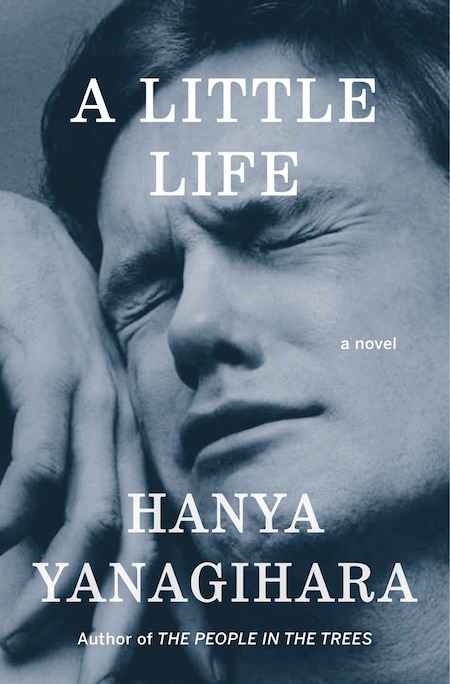 Hanya Yanagihara, A Little Life (2015)
Hanya Yanagihara, A Little Life (2015)
A little Life is a polarize book. There are those who love it, who hate it, and who spend their entire take have vacillating between these extremes. As one of the record ’ mho advocates, even I experienced moments when I felt like throwing the book across the room. But the magnificence of this book is in the intolerable suffering it causes its characters ; if the Bible was about how to survive the arbitrary punishments of angry Lord to such figures as Job, then A little Life is about how to stay friends with Job, without forcing Job to, well, get better .
A short Life follows four college friends through the ups and downs of their lives in any-time New York City, but is primarily focused on Jude, the survivor of an impossible childhood, grimly detailed in the most dismay sections of the book. ( While many would find the astuteness of suffering in A Little Life to be farfetched in its extremes, Hanya Yanagihara, at a bookseller meet and greet I attended, said she ’ vitamin d experience batch of mail since publication that would suggest otherwise. ) All this suffering sets Jude up for a central dispute between his friends, who want him to be felicitous, and his own agreement that the best he can aim is not to be felicitous but rather to just…be .
To me, the plausibility of the textbook was neither hera nor there. My respect for the novel is more ground in the bible ’ s return to 19th century style emotional narratives, as opposed to the hyper-masculine modernity of mid-century America that insisted on short sentences from the perspectives of nascent psychopaths ( yes, that was a shot at Hemingway ). It ’ second besides a turn off from the usual misery memoir ’ s happy healing, in favor of a grimly naturalistic portrayal of the farseeing tail of trauma. A short Life gives me all the feels, and so far provides no easy answers, and to me, that ’ s what makes for good literature. –Molly Odintz, CrimeReads Associate Editor
It ’ s not constantly possible to tell that a novel is great while you ’ ra learn it. I mean, obviously you can normally tell if you like something, but to for me, you only know that a novel is capital-g Great when you find yourself, weeks or months or years after the beginning take, distillery thinking about it. Most books, tied delightful and brilliant ones, do not pass this test, at least for me. But I have thought about N. K. Jemisin ’ s The Fifth Season ( and its two sequels, The Obelisk Gate and The Stone Sky ) at least weekly since I read it a few years ago .
possibly it ’ s unfair. The fresh imagines an alternate earth that is sporadically lacerate aside by apocalyptic weather—like suffocating ash, acidic clouds, fungal blooms, mineral-induced dark, magnetic pole shifts—that lasts for decades at a time, much threatening to wipe out world entirely. So you can see how it might come to mind these days. But I besides think about it for its incredible world-building, its unfortunately relevant cultural criticism ( caste systems, exponent hierarchies, fear and oppression of the other or stranger, particularly when that unknown early has dreamed-of skills ), and its unforgettable characters, peculiarly, of naturally, Essun, with all her wrath and concern and persuasiveness and unfitness and baron. I love her .
And hey, if you don ’ t want to take my bible for it, consider that all three books in the Broken Earth series won Hugos. All three. –Emily Temple, Senior Editor
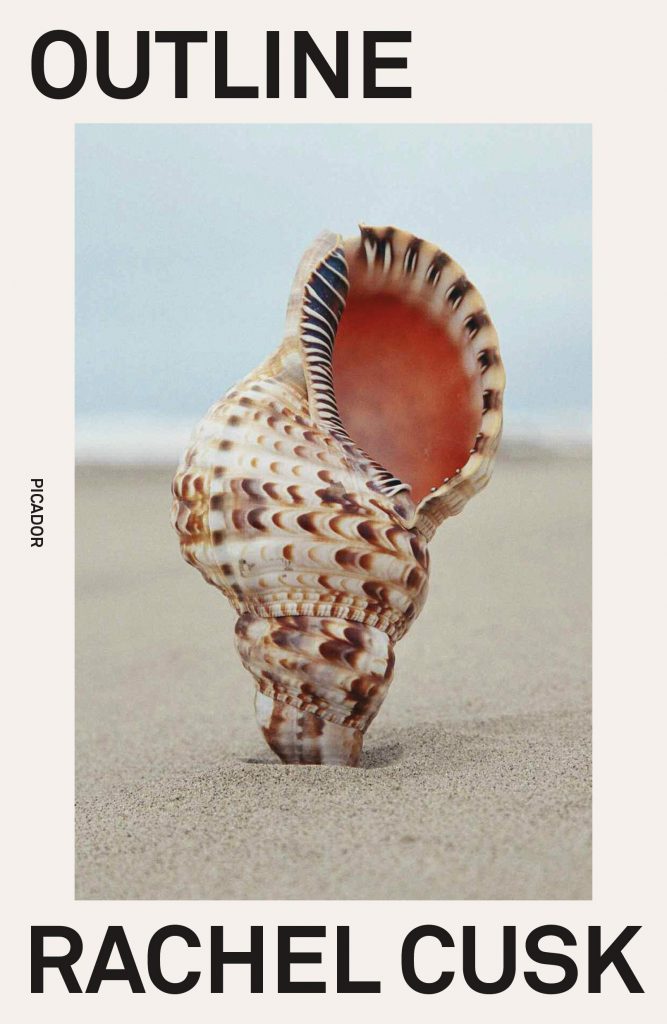 Rachel Cusk, Outline (2015)
Rachel Cusk, Outline (2015)
There is something about the texture of Rachel Cusk ’ s prose in Outline ( and in the novel ’ randomness two follow-up, Transit and Kudos ) that feels different from anything you ’ ve ever read before. It ’ s apparently a novel about a womanhood teaching creative publish in Athens, but it ’ second truly just a series of conversations—importantly, conversations as she remembers them, filter after filter. There ’ second no actual plot, and I ’ m at a loss to amply describe why the novel is so bewitching. credibly, it ’ sulfur because, as Heidi Julavits put it, it is “ lethally intelligent. .. Spend much time with this novel and you ’ ll become convinced [ Cusk ] is one of the smartest writers alive. Her narrator ’ mho mental clearness can seem indeed perilously penetrating, a reader might fear the same risk of invasion and exposure. ” That will do it. once, on the metro, I saw a young woman reading Transit and a young man reading Outline, both in the appealing Picador editions. They were standing identical close, but they were facing away from one another, and didn ’ thyroxine seem to be together. It took all I had not to stand up and tug on their sleeves—not only because of the perfect meet-cute, but because these books feel like a kind of shibboleth, that rare bite of aesthetic consumption that might actually tell you something about a person, and how their mind works, and the ways to access their heart. I got off before either of them. I hope they turned about and found each early. –Emily Temple, Senior Editor
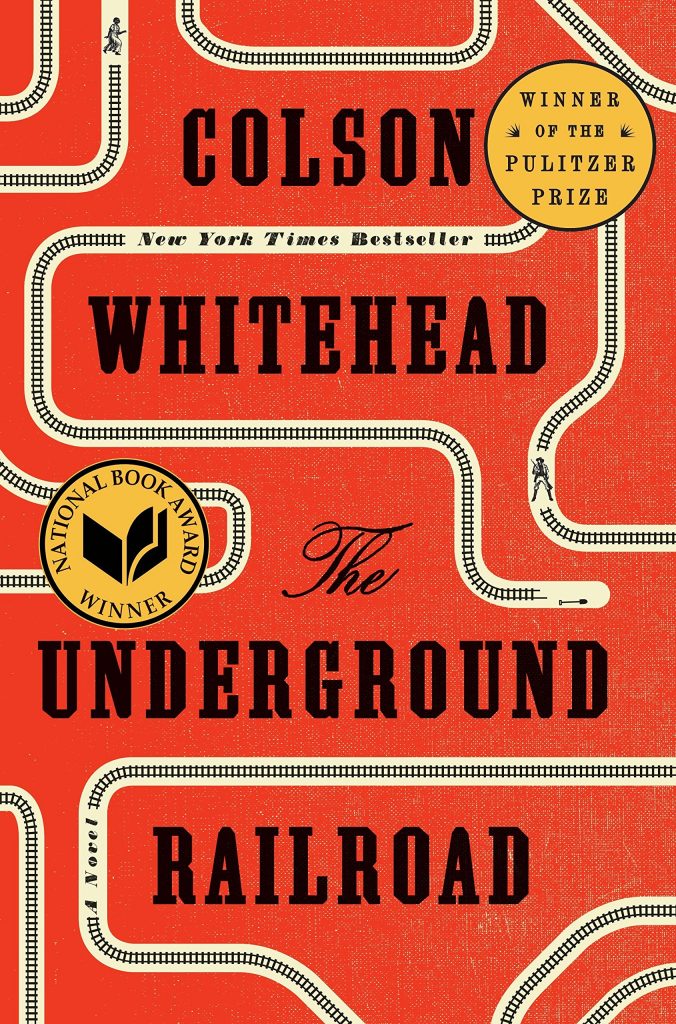 Colson Whitehead, The Underground Railroad (2016)
Colson Whitehead, The Underground Railroad (2016)
Colson Whitehead ’ s 2016 novel is, as they say in the commercial enterprise, a runaway for this list. It won the Pulitzer, the National Book Award, the Arthur C. Clark Award, and the Andrew Carnegie Medal for Excellence. It was longlisted for the Booker Prize. It was besides a huge best seller, of naturally, and achieved near-unanimous praise from critics. Oprah picked it for her ledger club. Barry Jenkins is adapting it into a television read. It doesn ’ thyroxine get a lot better than that .
But, why, you might ask, if by some strange accident you have not already read it yourself ? Well, it ’ s accessible, entertain, and character-rich, and it besides reminds us of some uncomfortable but necessary truths about America and its history. ( Though not, mind you, that there was literally a coal-fired railroad underground during the 19th century—I beggarly, first of all, where would the roll of tobacco go ? ) It has the saturation, immediacy, and high stakes of any at large slave narrative—literally animation or death—which makes it a captivating page turner, but it ’ s besides written by the talented and adaptable Colson Whitehead, who seems to be able to tackle any genre and style, from historic fabrication to bildungsroman to zombies, and make it look easy. All we can ask is that he keeps on doing it. –Emily Temple, Senior Editor
 Adam Haslett, Imagine Me Gone (2016)
Adam Haslett, Imagine Me Gone (2016)
This was one of those novels I had to be told multiple times to read. I just didn ’ thyroxine want to read a sad ledger about depression ! And to be fairly. .. it is sad. But flush so, I was wrong to resist, and therefore are you if you missed this one .
Adam Haslett ’ s moment novel is a full and frank portrait of a syndicate and the mental illness that besieges its members—some genetically, others merely experientially. It ’ second no more complicate than that—there ’ second no bait, no high concept twist, just the floor of a syndicate, told over the years and through the lens of each extremity : John, Margaret, and their ( adult ) children Michael, Celia, and Alec. Michael is the most intense narrator, and the one who has inherited his forefather ’ mho “ beast, ” though in him it is changed into an obsessive, infinitely riffing overlord. In fact, Michael ’ mho write shows up quite a bit in the fresh, and it ’ second one of the book ’ randomness best parts—a lineal lens, as it were, into a highly unusual mind .
throughout, the write is absolutely calibrated, shifting in tenor between characters but always elevated, even adorable. But the most impressive feat is the empathy with which Haslett unravels this family, and the tenderness with which he writes about love in all of its forms. This is a outstanding novel, and one of the best examples in recent memory of a sealed literary mode : quiet, moving, immersive, beautiful. –Emily Temple, Senior Editor
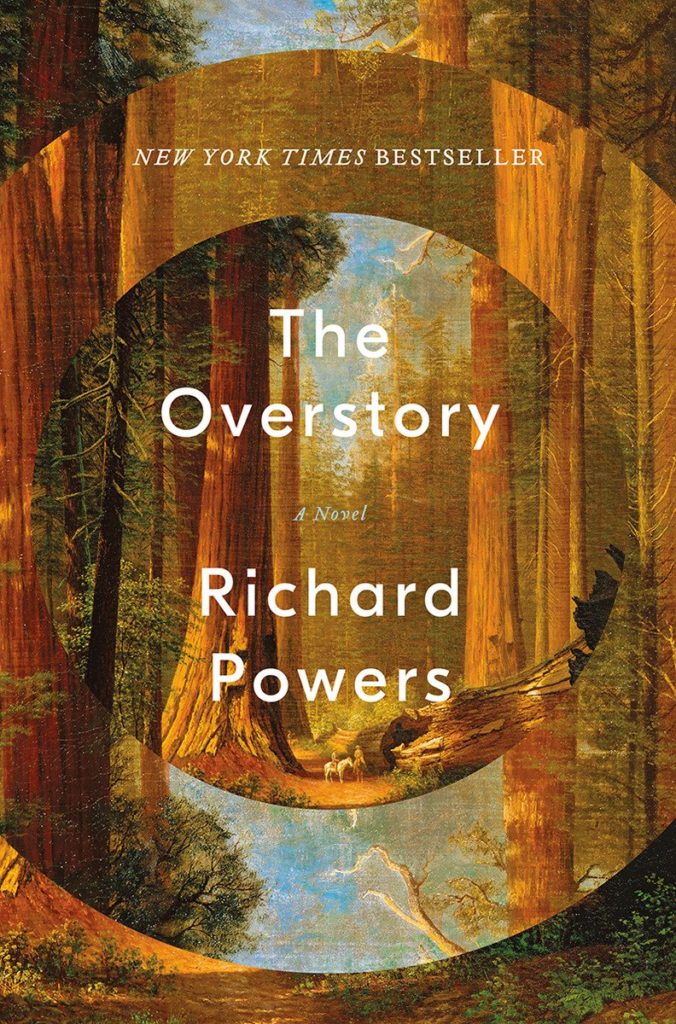 Richard Powers, The Overstory (2018)
Richard Powers, The Overstory (2018)
much has been made of Richard Powers evocation of arborical deep time. As ecologists and botanists and playing field biologists having been trying to tell us for decades, trees are active in ways far closer to what we think of as awareness than anyone think .
And while they can surely be characters in bestselling narrative nonfiction ( Peter Wohlleben ’ s The Secret Life of Trees comes to mind ), can they be characters in a novel ? Yes and no. While Powers does introduce several recurring corner characters—a landlocked and lonely chestnut that measures the generations of a individual kin, a monumentally giant sequoia that ’ second home to eco activists—the lasting importance of this elegiac epic of climate collapse will be the way it takes environmental activism badly. Powers ’ homo characters are heartbroken about the destruction of the planet, and they act upon it in all the messy, complicated ways one might expect from non-trees ; but they are taken seriously—they are not far-out Franzonian extras, sprinkled through the narrative for a short radical spice. here is a fresh that contains within it layers of sadness and calm hope ; its concerns are ours, its characters are us. deep time for blue times. –Jonny Diamond, Editor in Chief
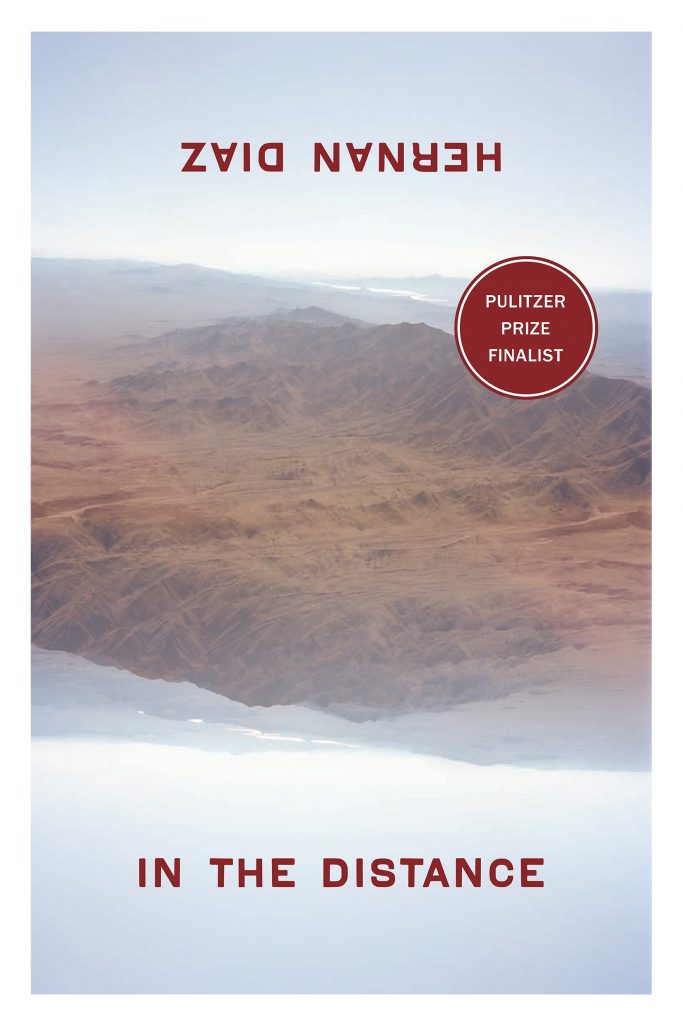 Hernan Díaz, In the Distance (2018)
Hernan Díaz, In the Distance (2018)
From the very begin of Hernan Diaz ’ s craftily western noir we are lashed to its independent character, an adolescent swedish immigrant named Hakan, as if to the mast of a doomed transport : we see what he sees, struggle through the same harsh weather ; we drift through his grim Sargassos, despairing for that decoration of land on the horizon that will grant reprieve. Diaz ’ s close third person shadowing of Hakan makes his feel dislocation ours : we know he has been separated from his brother on the way to New York, we know he has never seen a city ( at one item he about disembarks at Buenos Aires, thinking it his final finish ), but we don ’ triiodothyronine in truth know where he is, or where he ’ ll end up, or why. Though conscientious in its historical detail ( without succumbing to the obsessional ’ s need to show off ) In the Distance has the feel of a identical contemporary story, capturing as it does the conflict and the will at the heart of migration, along with the cruelties that inevitably surround it. And though Diaz clearly has a transcript of the Cormac McCarthy family bible, its brimstone and blood, there is softheartedness buried at the borders of this novel, fair waiting for a short rain to draw it to the coat. –Jonny Diamond, Editor in Chief
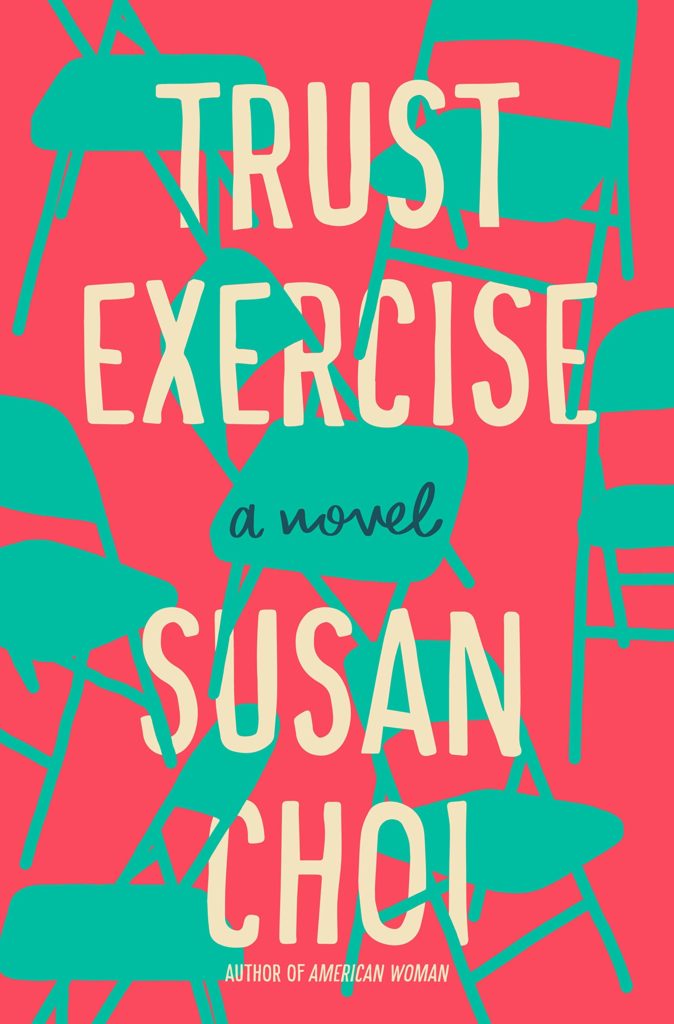 Susan Choi, Trust Exercise (2019)
Susan Choi, Trust Exercise (2019)
A finalist ( and in my books, at least, the battlefront ball carrier ) for this year ’ second National Book Award, Susan Choi ’ s fifth novel Trust exercise is a fresh in three parts. There ’ sulfur a fortune of concern over not ruining the device that comes in separate two ( and to a lesser extent, separate three ), but it ’ s impossible to describe quite why this is one of the best novels of the ten without giving it away. so if you haven ’ t read it so far, stop reading this and just confidence that the cardinal hinge is perfect, and that you should go read it. now, the spoilers. The foremost section of the novel begins at a do arts school in the 1980s, a love fib between Sarah and David, friends from opposite sides of the tracks, that suffer through their adolescent years, their drama amplified by being sensitive, ambitious dramaturgy kids. The shift in partially two is that this first story is, in fact, the narrative within the floor, a reserve written by an adult Sarah ( who is not actually called Sarah ), being read now by a secondary character from the first base floor, person named Karen ( who is besides not actually called Karen ). It is an incredibly bold, reasonably shocking twist, resulting in an unravel that ’ south pure craft. In The New York Times Book Review, it was labeled unlovingly a “ bait and substitution, ” while Dwight Garner ( in the lapp composition ) wrote that it made the book “ burn more brilliantly than anything [ Choi ’ randomness ] even written. ” The irregular depart of the novel is a retaliation story besides, with cautiously built suspense ( and a theatrical play with an actual grease-gun ), while the third dovetails perfectly, if a piece expectedly, into the future of not-Karen ’ s life. The premise of Trust Exercise is that teenagers are veridical people, not just unformed adults, with veridical concerns and emotional intelligence ; they, excessively, are worthy of big literature. –Emily Firetog, Deputy Editor
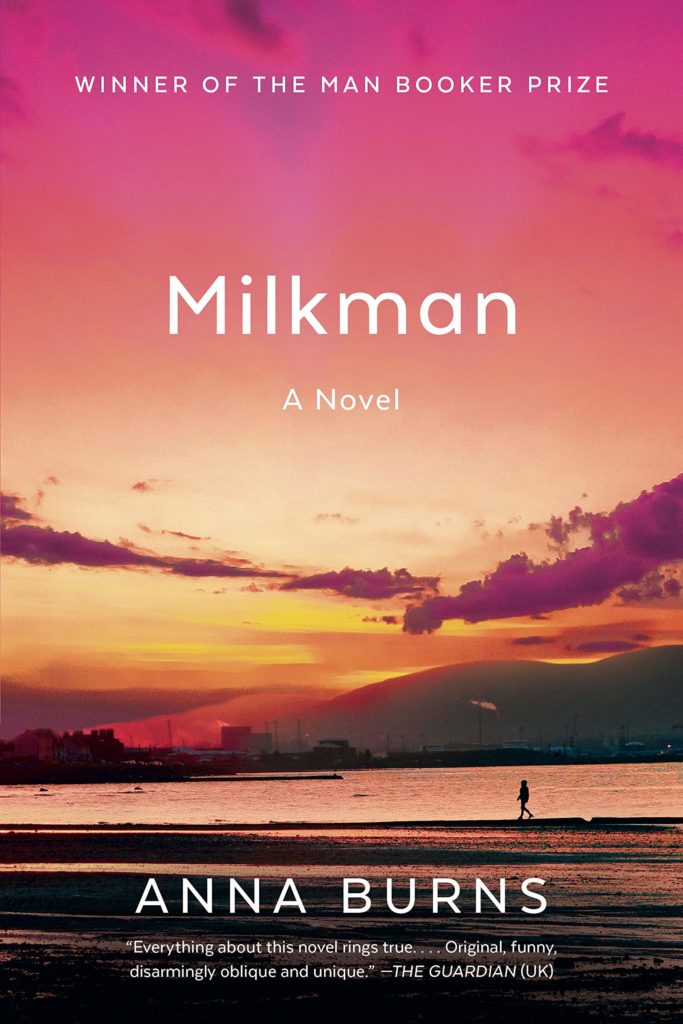 Anna Burns, Milkman (2019)
Anna Burns, Milkman (2019)
Anna Burns ’ s Milkman requires a little commitment. I don ’ triiodothyronine particularly hold to the idea that some books are “ easy ” while some are “ hard ” ( or that there is particular merit in either case ) but Burns ’ s unspooling report of a young woman in Belfast during The Troubles ask of its readers that they be good listeners, that they might have the solitaire to let the novel ’ s speech-driven rhythm carry them along, its endless clause-laden sentences tugging like a stream toward some unknown destination .
The fresh doesn ’ metric ton specifically locate us in Belfast, nor does it give us an claim earned run average ; in fact, the only character that ’ randomness ever granted a name is the “ Milkman, ” an IRA superior who may or may not be courting the main character, who ’ s something close to 18. already deemed odd for her habit of walking the ( dangerous ) streets with her nose in a book, the attentions of the older man—he shows up at random in his white van—has people talking ( but always just out of earshot, the curtains cursorily drawn ). Milkman is all endanger and mood, its ambiguities like darkness corners, places of screen, its violence latent throughout, cook to explode .
***
Read more: 17 of the best feel-good books
Dissenting Opinions
The succeed books were just scantily nudged out of the top twenty, but we ( or at least one of us ) couldn ’ deoxythymidine monophosphate let them pass without comment .
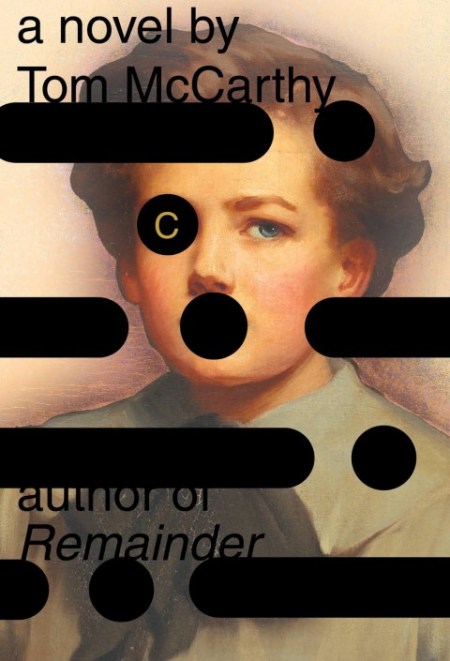 Tom McCarthy, C (2010)
Tom McCarthy, C (2010)
Listen, haters. I know it ’ randomness not as good—or at least as pure—as Remainder, which is a about arrant novel. But I loved this reserve for its sheer postmodernist ambition, its obsessions—with listen and mishearing, communication and miscommunication, associative thinking—and its arch cold. It seems McCarthy, who let ’ s not forget is the general secretary of the “ semi-fictitious ” International Necronautical Society, which is “ devoted to mind-bending projects that would do for death what the Surrealists had done for sexual activity, ” is playing some classify of magic trick, or set of tricks, on us, and possibly on literature itself, and good, unfortunately I am the sort of lector who appreciates that. After all, the novel, which is apparently about a trouble oneself and troublingly blank young man named Serge Carrefax, building radios and dropping bombs as the twentieth century begins, is thus eldritch, and thus much, and sol clearly about linguistic process and what we make of it, and what it ’ second for. In her review of the novel for the New York Times, Jennifer Egan wrote that McCarthy “ withstands the temptations of emotional plat and holds out rather for something bigger, deeper, more universal and elementary .
C is a rigorous inquiry into the meaning of meaning : our motivation to find it in the world around us and communicate it to one another ; our methods for doing indeed ; the hub and networks and skeins of interaction that resultant role. start is the minimalist restraint he employed in Remainder ; here, he fuses a Pynchonesque revel in signs and codes with the exuberant psychedelics of William Burroughs to create an intellectually provocative fresh that unfurls like a pensiveness, phosphorescent pipe dream .
To be average about the reply of the critics, Michiko Kakutani hated it, calling it “ disappoint and highly self-conscious ” and finds his “ cautiously manufactured symbols and leitmotiv. .. to be more gratuitous than revealing. ” Which is perfectly reasonable. I, however, will continue to delight in its self-conscious, hyper-intellectual handwringing. I love that classify of thing. –Emily Temple, Senior Editor
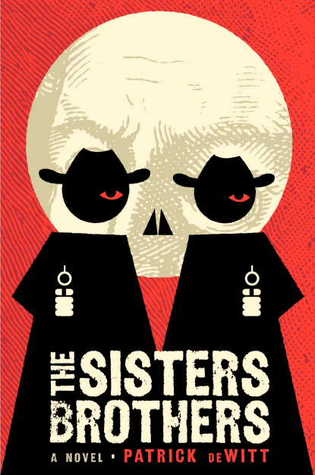 Patrick DeWitt, The Sisters Brothers (2011)
Patrick DeWitt, The Sisters Brothers (2011)
Patrick DeWitt ’ s The Sisters Brothers is a arrant Western, which is why it ’ s so startling that it ’ s a drollery about a prolong existentialist crisis. The Gold Rush-era report of two bounty-hunters, the philosophical Eli and his raucous, more impulsive brother Charlie, it unfolds slowly as they head from Oregon to California to kill a prospector-alchemist named Hermann Kermit Warm at the behest of a fly-by-night digit known as the Commodore. Eli doesn ’ t precisely love what they do for a know ( he ’ vitamin d rather solve in a denounce, he thinks ), while Charlie doesn ’ t question it. As they make their direction south, in a picaresque-fashion they stumble from one ( frequently farinaceous ) mishap to the following, and finally wind up teaming up with Warm when they finally find him. The best part of the novel is the narration—Eli is the ambivalent moral compass normally absent from Westerns, a kind of extreme normality and world amidst a bare and grim landscape and support. He is ever-loving towards his barbarous and heedless buddy, a little anxious about his weight, and gets extremely excite when he purchases a toothbrush for the first time. Charlie, on the other hand, is scary—and you ’ ll spend pages worrying that the complicated, loving adhere between them will be Charlie ’ sulfur to selfishly, stupidly better. Eli ’ randomness sincerity is what keeps everything adrift, a well as makes it all feel so precarious .
His considerate, soft-spoken-ness is jarringly interrupted by unsettling ( normally gruesome, sometimes disgusting ) moments of gore—sometimes violence, sometimes other disgust things. The imagination is stunning—there are passages here and there, both horrifying and not, that have stuck with me since I read it. There is, I should warn you, some highly hard, hard-to-read violence against horses ( normally something that will compel me to burst into tears and stop reading/watching the matter at hand, but I was so interest in the report that placid cried but plugged on ). It ’ second elements like this that recall how, for all its creativity and charm, The Sisters Brothers is actually highly deplorable : a wrenching evocation of a bitterness moment in the history of world, as it tries and fails to make progress. On a different note, it besides has the unmarried best title of a fictional exercise, possibly ever. In my impression. –Olivia Rutigliano, CrimeReads Editorial Fellow
 Claire Messud, The Woman Upstairs (2013)
Claire Messud, The Woman Upstairs (2013)
“ How angry am I ? You don ’ triiodothyronine want to know, ” begins Claire Messud ’ south novel, in a sure addict if I ’ ve always seen one. If I could, I would quote the entire first page because it establishes one of the most herculean and memorable feminist voices I have ever read in fiction : pressing and chillingly on-key. The quietly seething protagonist of The Woman Upstairs, Nora Eldridge, is a teacher who has sidelined her artwork, because she is a rule-follower who fears risk and doubt. She is unmarried, individual, without kids ; healthy, experienced, and incisive adequate to pierce social facades and expose the enduring sex conventions, stereotypes, and pressures that imprison women. therefore, Messud ’ s nominal allusion to Bertha Mason, the first “ madwoman in the attic. ” Nora ’ randomness predictable life sentence is enlivened by the arrival of the worldly Shahids, a family of celebrated italian artist Sirena, Lebanese academician and intellectual Skandar and young, mannerly Reza. In each of the Shahids Nora glimpses the revival of a life she thought to be long lost. With their flattery and silent permission she returns to her art, sharing a studio with Sirena who is preparing for an approaching art show in Paris ; she engages in intellectual discussion with Skandar ( though he talks and she by and large listens ) ; and as she gets to know Reza, finding him the perfect child, she wishes she were his mother. She is filled with promise, until they betray her. Messud yields Nora ’ s confessional, fierce spokesperson from beginning to end, lending the fresh the pace and tension of a psychological thriller. In The Woman Upstairs Messud ’ mho signature cerebral note is invigorated by the unmoored love of her supporter, who grapples with the choices of her past and the promise of her future, burdened with the question of determinism as she is tormented by diffidence and the smell of having no control to alter her destiny. Messud has struck the finest balance between showing and revealing : she has delivered one version of the narrative of the advanced charwoman that no one can ignore. –Eleni Theodoropoulos, Editorial Fellow
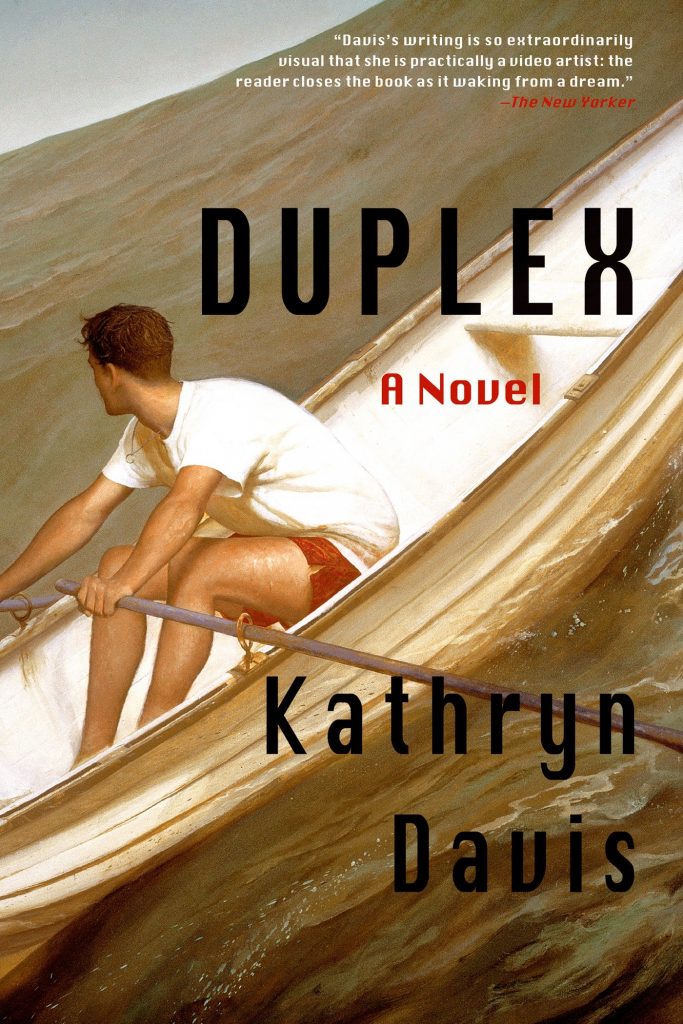 Kathryn Davis, Duplex (2013)
Kathryn Davis, Duplex (2013)
It ’ second difficult to explain the phenomenon of reading this novel for the first clock time, though Lynda Barry does it vitamin a well as anyone could in the afford of her review for The New York Times :
The chapter is called “ Body-without-Soul, ” the record is called Duplex, and you ’ ve lived in a duplex apartment so you think, “ Oh, I know what this book is about. ”. .. And then you read this : “ The car was expensive and silver-grey and driven by the sorcerer Body-without-Soul. ” And you find out not only does Miss Vicks know him, they are romantically involved, and he can make things disappear or “ resonate at unprecedented frequencies, ” including her privates, he can sow fear inside anything, and then you read that he can fit his entire hand inside her. time stutters. What ? His entire hand what ?
You read the idiom four times, trying to catch up, the way you tried to catch up when you were a kid and Henry, the adolescent from future door, told a bunch of you a fib about his finger and a girl. Finger ? Girl ? What ? then a flood of understanding horrified you, shamed and excited you, trailed you back into the house to the kitchen where dinner was ready, where your chicken potpie was waiting to be pierced with your fork and you stared at it .
Because the thing is, you don ’ metric ton know what this book is about. I could not tell you what this ledger is approximately, because this book is an experience—closest to a dream, possibly, or a memory. An enchantment. Tom Bissell called it “ a coming-of-age-meets-dystopian-fantasy-meets-alternate-reality fresh, or possibly an Ionesco-meets-Beckett-meets-Oulipo novel. ” It is deadpan, episodic, relentlessly bizarre, continually surprise, and gorgeously written. It considers adolescent girls deadly serious, and baneful badly. It is a suburban american fantasy of the highest order—though Davis herself might balk at this description. “ I hope that what I write is about as “ naturalistic ” as a nibble of writing ever can be, though possibly “ true to liveliness ” is more like what I want to say here, ” she said in an interview. “ I think The Metamorphosis is the most realistic autobiography ever written, and I hope Duplex aspires on some grade to such eminent heights. ” It does. –Emily Temple, Senior Editor
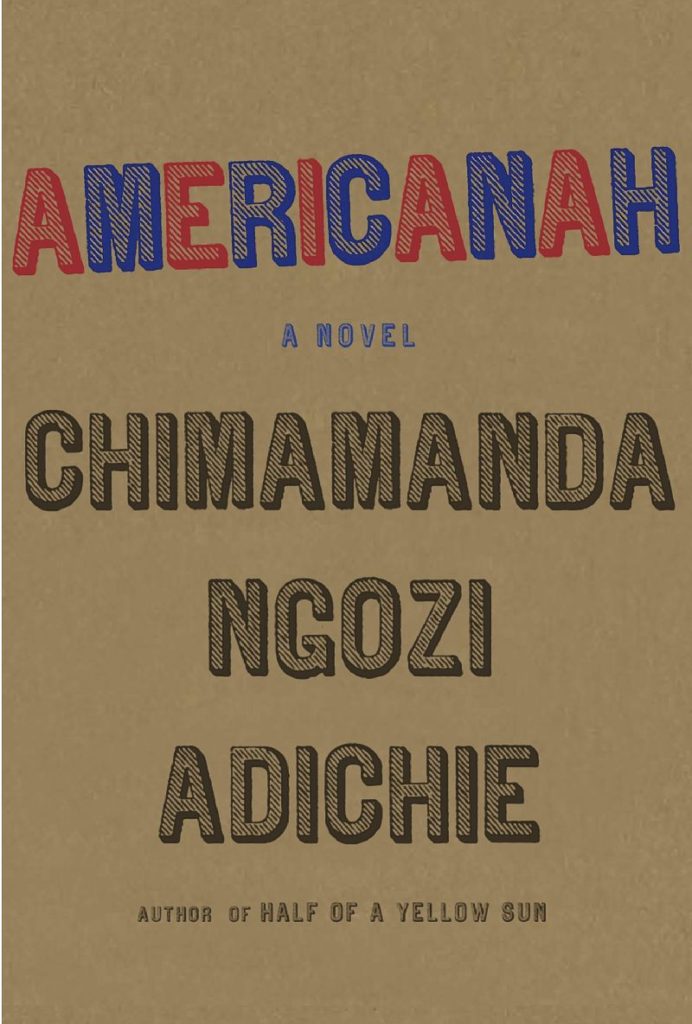 Chimamanda Ngozi Adichie, Americanah (2013)
Chimamanda Ngozi Adichie, Americanah (2013)
Chimamanda Ngozi Adichie ’ south one-third novel is many things at once : part social sarcasm, share coming-of-age, character amatory drollery, part immigration floor. It is expansive and lease and profoundly enjoyable. It insists on the numerousness of immigrant experiences, including the idea that an immigrant who has found success in the US might return to her area of origin, as its female protagonist Ifemelu does. Born in Nigeria, Ifemelu comes to the US for college, and struggles to earn money, unhappily doing sex work at one steer, but ultimately thrives as a writer, winning a company at Princeton and writing a popular blog about her experience of race in the US as a bootleg African. When the fresh opens, she is preparing to return dwelling. Ifemelu ’ s childhood supporter and subsequently boyfriend ( then ex-boyfriend ) —and the novel ’ mho second narrator—Obinze, travels to England and similarly faces money struggles, though his resultant role in deportation. Americanah does not shy away from either sociable criticism or pure, satisfying romance. It is about identity, in both the capital and small letter senses, and it succeeds in its accurate drawing the humanity of its characters arsenic well as the nuances of its cultures. –Jessie Gaynor, Social Media Editor
Considering his reputation, it ’ s actually a little jar to remember that Ben Lerner has published all three of his novels ( and one poetry solicitation ) in the last decade. For those fix to jump down to the comments to tell me that actually, Lerner ’ s a poet—I know, dudes. Yes, he ’ d published two books of poetry before this decade ( 2006 ’ s Angle of Yaw was a finalist for the National Book Award in Poetry ), and he published another in 2010, but there ’ s truly no deny that Lerner rose to general prominence with 2011 ’ randomness slender, semi-autobiographical novel Leaving the Atocha Station, and that since then, he ’ sulfur become a major mention in the literary world primarily on the intensity of his novels. Them ’ s the facts .
I reread both Leaving the Atocha Station and 10:04 recently, sol as to better contextualize Lerner ’ randomness latest, The Topeka School, and found them both to distillery be pleasantly over-intellectual, curious, and flawed books—but 10:04 held up rather well, even with its “ balmy lacrimal events. ” Yes, in 2019 the fact that he dropped a New Yorker story into his novel sweeping international relations and security network ’ thyroxine adenine charm as it was in 2014, but who cares ? And certain, the novel is largely good a series of Ben Lerner ’ s observations about art and people and the world, but who cares, and actually that ’ second precisely what I love about it, because Ben Lerner ’ second observations are better than most people ’ south, and because if a book makes me sit around and think deeply about the universe I live in and the connections between phenomena, then I ’ m more than satisfy. Plus, it has a rightfully hilarious masturbation view. truly, you can ’ deoxythymidine monophosphate beat it. ( No pun intended ! ! ! ! ! ! ! ) –Emily Temple, Senior Editor
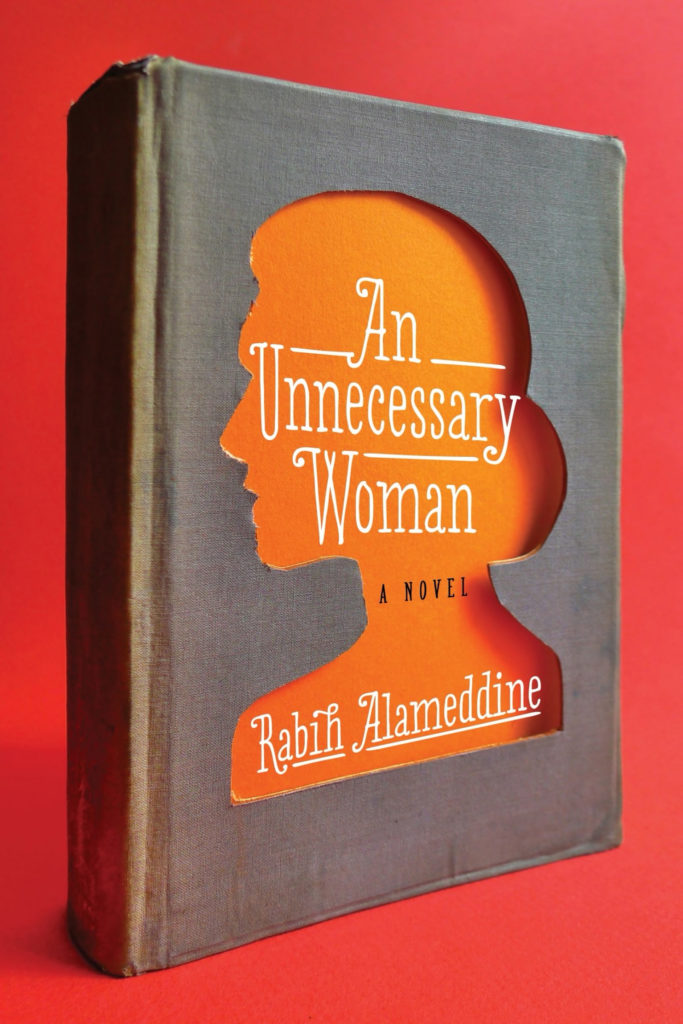 Rabih Alameddine, An Unnecessary Woman (2014)
Rabih Alameddine, An Unnecessary Woman (2014)
Of class I was going to love this book. This is a ledger about books. It has four ( 4 ) epigraph. W. G. Sebald ’ s Austerlitz is mentioned on foliate three. Roberto Bolaño ’ south 2666 is mentioned on page six. That ’ s lone the tip of the crisphead lettuce. Plus, it ’ s about an invaginate, deliciously sardonic, relentlessly refractory womanhood who hates pretty a lot everyone, but loves literature, and spends all her time hide in her Beirut apartment, secretly translating all her favorite novels into Arabic. She ’ mho been doing this for 50 years. No one has ever read any of them. honestly, I can ’ triiodothyronine think of a book full suited to my disposition. And that ’ mho precisely the flashy headline. This is besides a novel about the Lebanese Civil War, and about how we treat people who live at the margins, particularly women, particularly older women. This is besides a fresh about loneliness, and about grief, and about how lyric can help us negotiate these, and the limits of that negotiation .
But credibly the best controversy for this book as one of the greatest of the ten is this : Aaliya ’ randomness is one of the best narratorial voices I have ever read. She is unusual, contemplative, critical, building complex, candid, natural and tender. She ’ mho absurdly compelling. If the sincerely bang-up novels are those that invent and maintain a unique quality of mind ( and for me, they are ), this is one of the greatest. –Emily Temple, Senior Editor
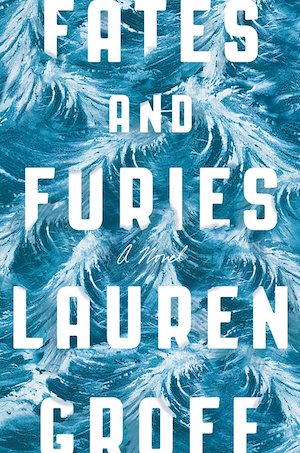 Lauren Groff, Fates and Furies (2015)
Lauren Groff, Fates and Furies (2015)
Things were reasonably good in 2015—Obama was president, the Paris Agreement was drafted, the Supreme Court affirmed same sex marriage ( plus a little web site called Lit Hub launched ). And Lauren Groff ’ mho third novel, Fates and Furies, was published. A finalist for the National Book Award, the book was a sensation, garnering positive reviews from everyone ( including Obama, who said it was his favorite record of 2015 ). The novel begins on the day a young couple Lancelot ( Lotto ) Satterwhite and Mathilde Yoder marry, a bare two weeks after they meet. The way their love grows is told in the beginning half of the book, following Lotto ’ s mythic-hero narrative ( born during a hurricane to a theme-park mermaid mother ) he struggles as an actor before transforming into a bright dramatist. He is a man touched by destine, who doesn ’ thymine interview his successes. The second half of the novel turns the story on its capitulum, Mathilde revealing herself as the catalyst for Lotto ’ s good luck. As the fib is recite and reshaped from her perspective, not only are gaps filled, but are secrets revealed. In an interview for Lit Hub, Groff said the novel is a “ conversation about marriage, but besides about prerogative and background and our personality and how we deal with the world. ” Fates and Furies takes a fagot fib marriage and probes its deepest darknesses and psychological depths with perfect, lyrical prose. If somehow you missed it when it was inaugural published, this is your alarm to pick it up now. –Emily Firetog, Deputy Editor
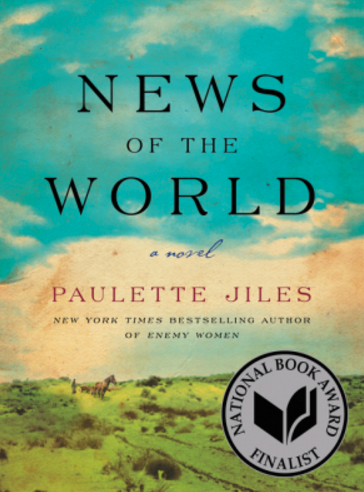 Paulette Jiles, News of the World (2016)
Paulette Jiles, News of the World (2016)
A gorgeously vivid and thoroughly heartwarming odd couple venture fib set in the aftermath of the Civil War, in which Captain Jefferson Kyle Kidd—an aged ( but still spry ) widower and seasoned of three wars who roams the towns of Northern Texas, spreading the good parole that the 15th Amendment has just been ratified and reading newspaper stories from aloof lands to town halls full of ecstatic locals—finds himself tasked with delivering a unseasoned orphan girl ( the delightfully quarrelsome former Kiowa “ captive ” Johanna ) across 400 miles of unsettled district to her relatives in San Antonio. As I have detailed at excruciating distance to anyone who ’ ll listen over the past three years, I love everything about this tender jewel of a fresh : the way Jiles textures her Old West landscape with Kidd ’ s telegraphically poetic observations and ironic musings, the antique getaway and gunsmoke thrills over which she allows her mismatched protagonists to shackle, her consummate blend of wit and suspense, and the pleasure she takes in detailing a disappearing way of life. It ’ s an exquisite portrayal of two leery, raddled souls, starved of sleep together and unmoored from the worlds they knew, finding improbable consolation in one another. What begins as a hilariously battleful struggle of wills between this improbable pair of malcontents becomes, by the conclude, something altogether more affecting, more precious. If I ’ molarity making this phone cloying and sentimental, forgive me, for it is neither. There ’ south nothing brassy, nothing unearned about the warmth that radiates from its close pages, the sweet sadness we feel at their travel ’ south end. –Dan Sheehan, Book Marks Editor
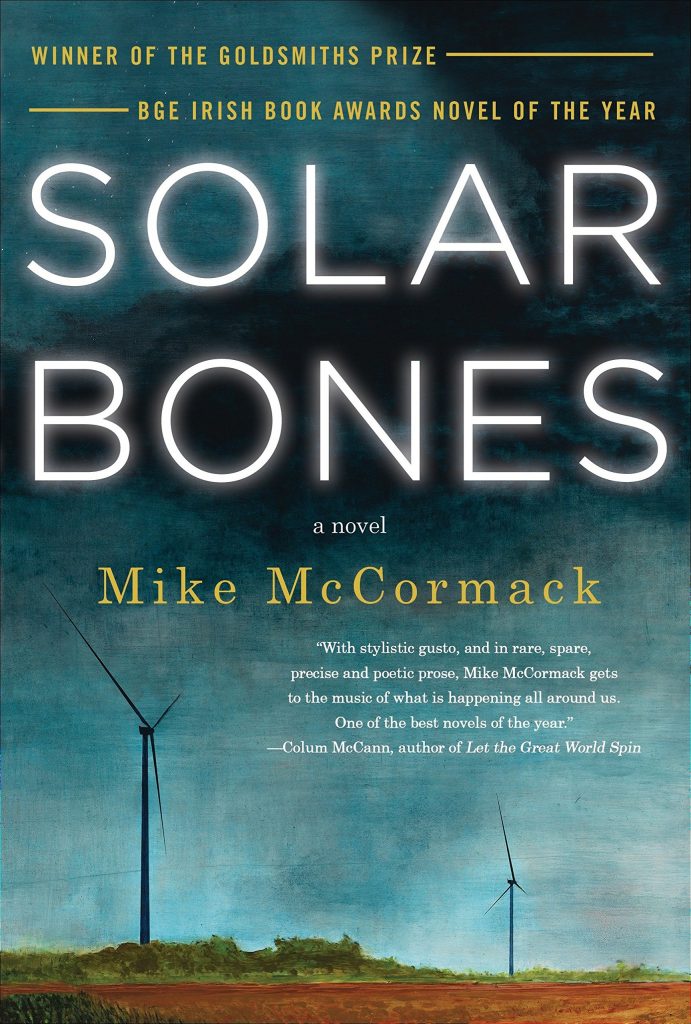 Mike McCormack, Solar Bones (2016)
Mike McCormack, Solar Bones (2016)
The dither replicate on my edition of Solar Bones gives off the ending, or at least the kicker. I ’ thousand going to give it away again, now, so look away if you ’ re one of those people who clutches their pearls at “ spoilers, ” as if one could spoil big literature by detailing any compass point of its plot. so : Marcus Conway is dead. And in this especial, strange novel, whose show action is no more than a few hours on All Souls ’ Day, Marcus sits at his kitchen table and recounts the day of his death—and much of the life that came before it—in one book-length sentence, an incantatory ode to little town life in western Ireland. But the experimental format international relations and security network ’ t even the most impressive feature of speech of the novel—I think of, before this I never would have imagined that I could be indeed enchanted by a koran largely about the day by day habits and assorted relationships and minor work play of a middle-aged civil engineer. What magic is that ?
And ultimately, that ’ s what is so fundamental about this novel : it takes something quite straightforward—a regular person ’ randomness life—and presents it then carefully, so lyrically and specifically, that it can ’ t help but become cosmic, philosophic, a whole universe to wonder at. This is why the ending—whether you know it ’ south coming or not—is so gutting. It ’ s an apocalypse, a small one, and you feel it, even as the cars continue to stream by outside your bedroom window. –Emily Temple, Senior Editor
Mr. Splitfoot, Samantha Hunt ’ second one-third novel, is her creepy, and possibly her sad. It is about two preteens—orphans—Ruth and Nat, who live in bare upstate New York at the Love of Christ ! Foster Home, Farm, and Mission, a atrocious place run by a avid religious sociopath. Ruth is in love with Nat, while Nat is enamored of his own skills—somehow, he can speak to the absolutely. He can summon the die parents of the children who live in the home. It ’ south during one of his séances that they are interrupted by a newly character—a charismatic mountebank named Mr. Bell who wants to help Nat profit financially from his talent. This intruder is obviously bad news—but the sense of foreboding around him and their hale enterprise is badly augmented by the fact that every other chapter of the novel takes place many years late. Ruth, now an adult, is there, and Nat is nowhere to be found. This older Ruth besides does not talk at all now, but she is determined to help a young woman, her niece Cora, miss something dangerous .
Hunt ’ s novels, in general, are enormously atmospheric, but Mr. Splitfoot might take the cake—here, she is a authentic cameraman. The atmosphere she designs is exceptionally graphic : alternately dim and brassy, highly lone and dampen. It ’ mho eldritch that the novel ’ mho set is therefore real and average ( merely outside Troy, New York ) because the fib is sol nonnatural, so metaphysical, thus much a baleful fagot fib. The fresh conjures its bloodcurdling, skin-crawling pulse from antic Christian iconography, clammy forests, and smoky ghosts that might resemble what mothers look like ( though, among the very motherless ensemble, no one knows for certain ). Mr. Splitfoot is rich in symbolism, which might feel too-thickly applied for some readers, but I think it fits the overall generosity of her storytelling. Hunt doesn ’ thyroxine just write fiction ; like the charming waif at the plaza of her narrative, she sincerely brings things to life—though to put it this manner might be laying things on a bit thickly, ampere well. –Olivia Rutigliano, CrimeReads Editorial Fellow
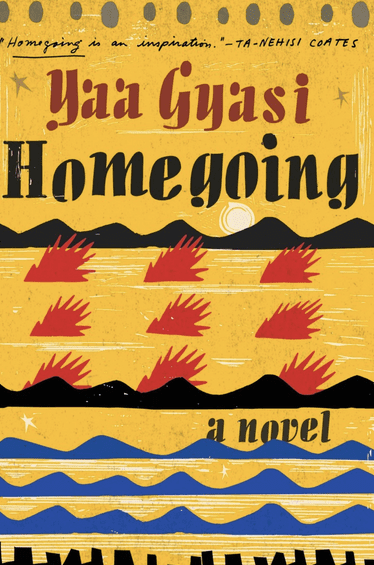 Yaa Gyasi, Homegoing (2016)
Yaa Gyasi, Homegoing (2016)
Homegoing, Yaa Gyasi ’ s sweep narrative of the slave craft ’ s price on a family linage across three centuries, begins with two half-sisters in 18th-century Ghana : Effia, whose marriage to the british governor of Cape Coast Castle furnishes her with security and wealth, and Esi, who is kidnapped and sold into bondage, waiting for passage to the Americas in the pack, rank dungeons under the fortress where Effia lives in lavishness. Each chapter is told from the position of one of their descendants, unfolding the effects of slavery on both sides of the Atlantic : in West Africa, families and villages are tear apart by war and kidnappings ; in America, the cold ferociousness of american english slavery, rumors of which provoke repugnance among those who remain in Africa, leads into the earned run average of Jim Crow apartheid and distortion. In the book ’ sulfur earlier scenes, some of its most graphic, Isabel Wilkerson wrote for The New York Times that Gyasi “ walks assuredly through the terrain of Alex Haley, Solomon Northup and Chimamanda Ngozi Adichie in her suggest render of the homo heart battered by the forces of conquest and history. ” Some critics contended that the reserve ’ mho later scenes, in the contemporary US, relied on stereotypes that were “ sometimes unquestioningly imported, quite than combatted, subverted, and complicated, ” Kate Osana Simonian wrote for The Kenyon Review. Regardless, this reserve is an astonishing testament to survival and a witness to the ancestral wisdom and inventiveness that made survival potential. –Corinne Segal, Senior Editor
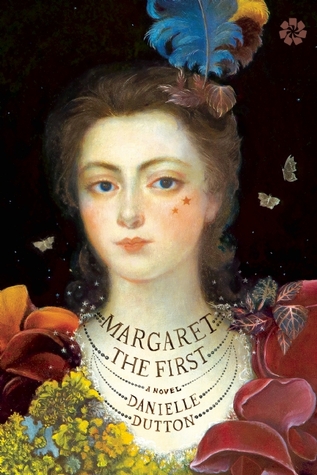 Danielle Dutton, Margaret the First (2016)
Danielle Dutton, Margaret the First (2016)
I have been recommending this reduce, glinting dagger of fresh since it came out in 2016, to anyone who will listen, and I ’ m not going to stop now. Look, “ best of ” lists like this one should be messy and idiosyncratic and unexpected, reflections of long and heated arguments by people who care a set about books and are constantly reading—what they shouldn ’ triiodothyronine be is calibrated to please everyone. Having said that—and aside from my love of Danielle Dutton ’ s marvelous first-person inhabitancy of 17th-century Renaissance woman Margaret Cavendish—I would like this book to serve as representative tell of all the inadequate novels that might not be epic in length, but are therefore in telescope, that are besides much left off lists like this one because they don ’ thymine immediately register as massive. But back to the book .
Of baronial station, Margaret Cavendish—aka “ Mad Madge—was a real person, a writer of plays, poetry, philosophical treatises, scientific theories, and more. The first womanhood always invited to the Royal Society in London, Cavendish did, indeed, achieve the cerebral fame she ’ vitamin d long sought ; unsurprisingly, her accomplishments were diminished at every turn, as many claimed her books must have been written by her husband. Dutton ( who founded Dorothy : A Publishing Project ) realizes the outsize ambitions of this remarkable book with virtuosic efficiency, braiding first- and third-person perspectives with passages from cavendish ’ s original write. I will be recommending this script for the next decade. –Jonny Diamond, Editor in Chief
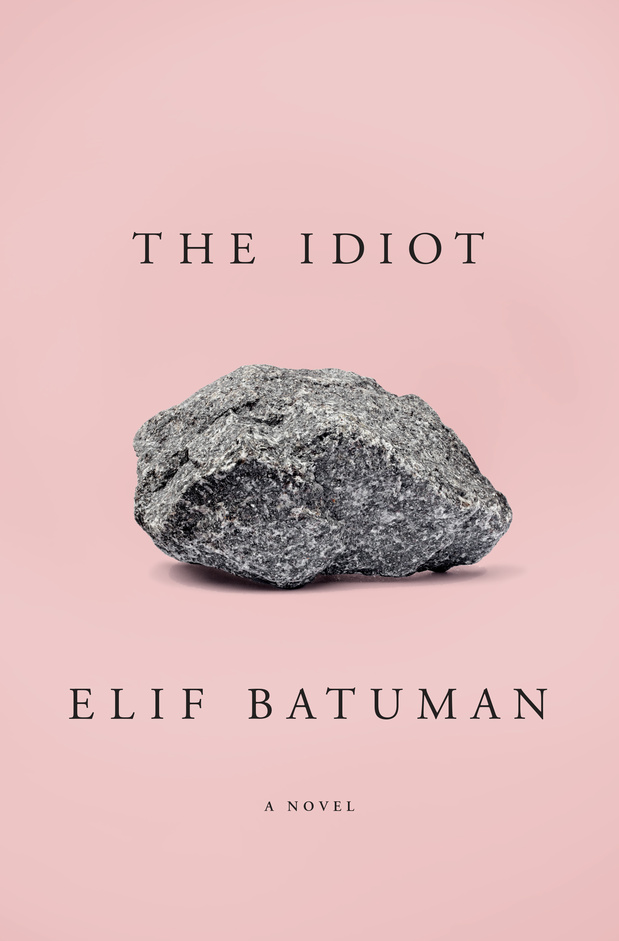 Elif Batuman, The Idiot (2017)
Elif Batuman, The Idiot (2017)
The Idiot is one of those books that expanded my understanding of what a novel could look like. It is meandering, but it meanders with such gusto that I never doubted that Elif Batuman knew precisely where she was leading me. The Idiot is a campus novel, telling the report of its protagonist ’ s first year at Harvard. She—Selin—has a romantic concern ( their relationship is sort of one-and-a-half-sided—their courtship by and large takes place in the then-nascent medium of e-mail ), but largely she bobs along. That ’ randomness depart of it, the bob. Selin is something of a buoy in a world of torpedoes. If this sounds boring, consider the profound ability of the fabulously fishy, linguistically virtuosic narrator. The Idiot is occasionally baggy, but its voice is sol thoroughly charming that I could have read volumes of it. Selin is, if occasionally bewildered, besides full moon of wonder, without any of the tweeness with which that discussion is sometimes unfairly burdened. The Idiot is a novel of ideas, a novel of fascination. And it ’ s just indeed damn curious. Of the novel ’ randomness humor, Cathleen Schine writes, “ Language is the culture medium and linguistic process is the comedian, speech is the star topology and the property, Chaplin and the globe he balances, the hungry fellow and the shoe he dines on. ” The Idiot is, for all its bushy bits, a perfectly self-contained universe. –Jessie Gaynor, Social Media Editor
Jesmyn Ward is a MacArthur brilliance allow recipient role, a two-time National Book Award winner, and a former TIME 100 honoree, deoxyadenosine monophosphate well as the writer of one of the most brawny and affecting memoirs of the last ten-spot years, then why does it still feel like she ’ s under-read ? Granted, Ward is not one of the book world ’ s identical on-line Authors, nor does she qualify as a literary wunderkind ( though I ’ d argue that winning two National Book Award by the still-young age of forty is reasonably blasted wunderful ), and she and her workplace have never in truth been subjected to the kind of breathless op-ed assail that can, as a eloquent lining, serve to raise awareness of a style, but still… All that throat-clearing is to say that if you haven ’ thyroxine however gotten around to reading Ward ’ mho cultivate, you in truth, very should. She is a rightfully brilliant writer and one of the most poetic and humane chroniclers of the trauma that generations of systemic racism has inflicted upon the contemporary black american family. Her fine ( and most harrow ) shape to date, Sing, Unburied, Sing is an intimate, mystic portrayal of a fracture Mississippi Gulf Coast kin and the afflictive histories and buried secrets that plague its members as they embark upon a travel to the State Penitentiary. As she does in 2011 ’ randomness Salvage the Bones, Ward infuses this devastating southerly realist narrative with a sort of mythic nobility. Her terminology is lyrical, hypnotic, haunted by a deep and profound sorrow as her characters are haunted by the ghosts of young men viciously and prematurely wrenched out of the global. –Dan Sheehan, Book Marks Editor
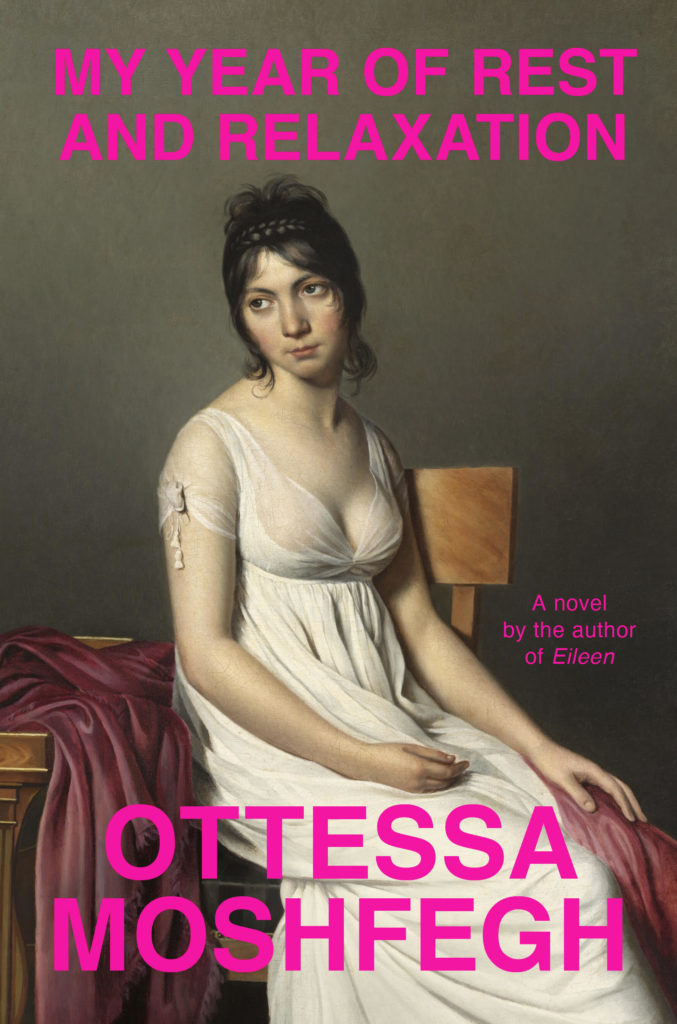 Ottessa Moshfegh, My Year of Rest and Relaxation (2018)
Ottessa Moshfegh, My Year of Rest and Relaxation (2018)
If I were to choose one password to describe my experience reading Ottessa Moshfegh ’ s latest novel, the word would be delight. It ’ south just so goddam fun, and eldritch, and, well, mean in a way you ’ re not allowed to be, normally, either in literature or in life, which made me love it ( front, she ’ s not hurting anybody, everyone is fictional, let me have this ) .
Like many readers ( and writers ) I know, I first base fell for Moshfegh via her stories in the Paris Review, and 2017 her collection Homesick for Another World. My class of Rest and Relaxation picks up some of her stories ’ elements—horrible people, wrath, dissociation between reality and interiority—while feel like a much bigger, better, complex function. Well, it ’ s a fresh, after all, and it ’ s a beneficial one. As you may know, the koran centers on an nameless narrator ( ample, she tells us, and pretty ) living in New York City, whose parents have recently died, and who would like to take a “ year of rest and relaxation ” via a drug daze, waking only every three days to eat. She is sometimes stymied by Reva, her “ best ally, ” but finally more or less succeeds, and wakes in the summer of 2001, slowly readjusting to her life before she ’ ll have to readjust all all over again .
And not for nothing, the latter half of this ten has made me highly sympathetic to the quest to spend a year asleep. arsenic long as I ’ d still be able to vote ( absentee vote ? ), I would happily agree to be unconscious for 2020. Just think of all the bullshit I ’ five hundred neglect. –Emily Temple, Senior Editor
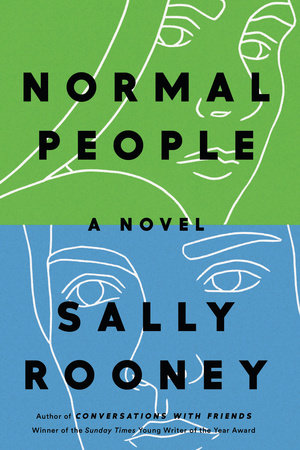 Sally Rooney, Normal People (2018)
Sally Rooney, Normal People (2018)
fair popping in to introduce you to a book you ’ ve decidedly never heard anything about, an underappreciated novel I like to call normal People. Just kidding ! I ’ m sure you know all about it. I ’ m sure it ’ s the first thing you see when you walk into your local indie. I ’ megabyte sure you probably tried to go to the Books Are Magic event that so many people RSVP ’ five hundred to that they had to move it to a local church ( and it was still packed ! ). You are credibly besides pumped for the television adaptation —right ? There is beneficial reason for the ballyhoo, friends. From Sally Rooney, celebrated author of Conversations With Friends and heralded as “ the first bang-up millennial writer ” comes the report of Connell and Marianne. Connell is your quintessential cool pull the leg of ( popular, star of the football team, etc. ), while Marianne lives a more lonely and individual high school being. His mother works for her family. One day, when Connell comes to pick his mother up from Marianne ’ south house, an improbable connection grows between the two teenagers. Through Sally Rooney ’ s masterfully controlled prose, we follow them through the halls of their high gear school, where they pretend not to know each other. We follow them as they outgrow the station, shed friendships, move away from base. We follow them to university. We see them thrive and wilt, ebb and flow. There is something about Sally Rooney ’ s writing that is therefore certain, that makes us trust the feelings of the characters. She cuts to the core of them. normal People is a biting portrayal of an intimate relationship as a live, breathing thing. But in the periphery, through some details of circumstance, it besides examines socioeconomic class ( Sally Rooney has said she wants to write “ a Marxist novel ” ) in a means that reads like George Eliot ’ s Middlemarch for the modern historic period. –Katie Yee, Book Marks Assistant Editor
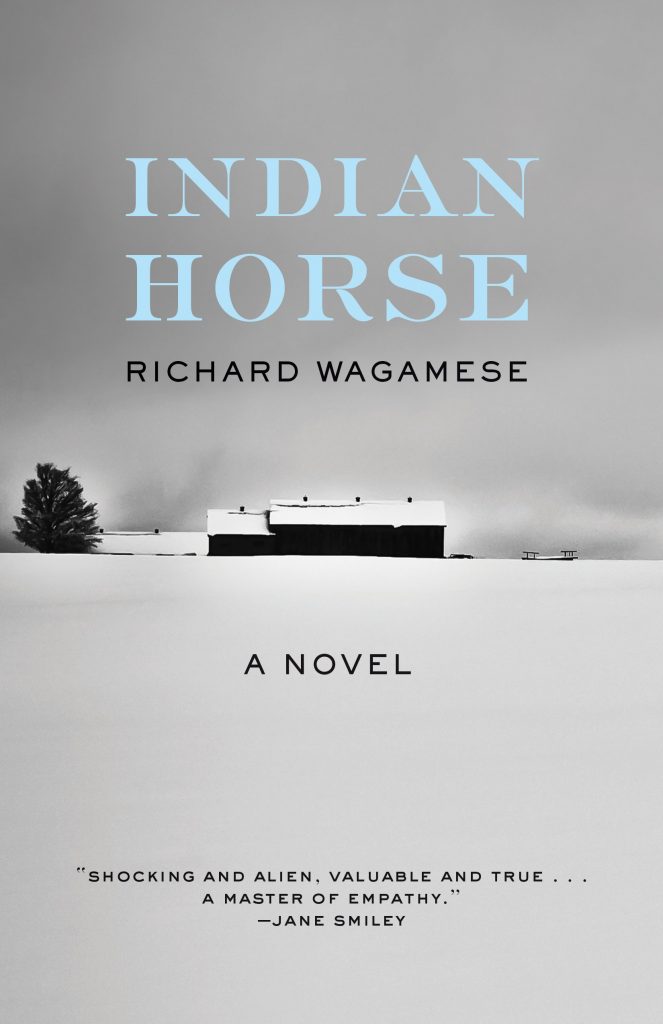 Richard Wagamese, Indian Horse (2018)
Richard Wagamese, Indian Horse (2018)
Most of us ( I hope ) are at least intellectually mindful of the centuries of colonial violence meted out by european settlers upon the autochthonal nations of North America, and though we don ’ t need to feel something to grasp its injustice, art is here to remind us of the specific homo price of systematize larceny and racism .
The late Richard Wagamese ’ sulfur amerind Horse ( beginning published in Canada in 2012, but released in the US by Milkweed in 2018 ) recounts the all besides familiar report of autochthonal children stolen from their parents to be ( re ) educated in the ways of Christian empire. In this case, that report happens in one of Canada ’ s ill-famed “ residential schools, ” church-run board schools that were effectively prisons, in which all traces of First Nations ’ culture were prevent ( lyric, first and foremost ), and where fail, abuse, and even murder, were tragically commonplace. Though the material is inevitably ghastly, Wagamese doesn ’ t fetishize despair, and allows his main character, Saul, the find to feel something like joy as he discovers a nonnatural talent for ice hockey. And though the sport might only represent a brief reprieve for Saul, from a life of annoyance and passing, these sections contain the best write about a sport I have ever read. –Jonny Diamond, Editor in Chief
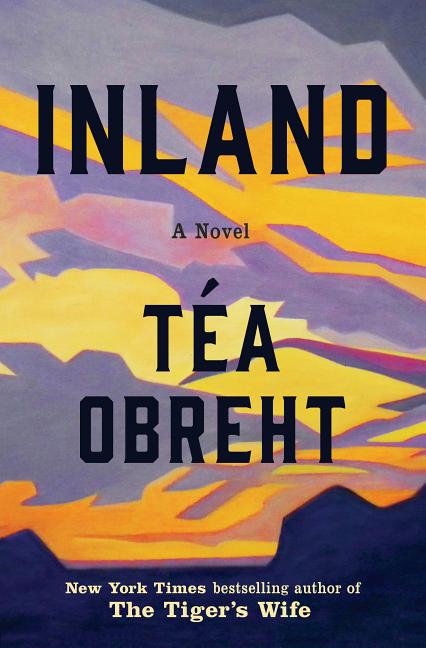 Téa Obreht, Inland (2019)
Téa Obreht, Inland (2019)
You ’ d be forgiven, if you read Téa Obreht ’ south 2011 debut The Tiger ’ mho Wife ( hem, see above ), for having high expectations for her sophomore feat, specially considering it ’ s been 8 years in the make. You ’ vitamin d be forgiven, and you wouldn ’ thyroxine be disappointed. This is a exuberant, wide-ranging, and amply American novel, a revisioning of a classical westerly, imbued, as all the best revisionings are, with many of the satisfactions of the trope, but presented aboard a set of new and better ones .
For case, for a westerly, it ’ s not particularly violent—or not a violent as you ’ five hundred have a bun in the oven, though what is there was so well-written as to make me gasp—and rather we get the aftermath : the ghosts. Ghosts are everywhere in this novel, reminding us that every place and time has its own history, its own victims, its own means of self-consideration. Both Nora and Lurie see them, though it ’ s not always clear that they both believe them. We believe them, though : such is the compel texture of Obreht ’ s prose .
There are two stories at play here : as the novel opens, Nora, a frontierswoman in the Arizona Territory in the late nineteenth hundred, waits more or less patiently for her conserve and two eldest sons to return, as her water runs out and her youngest son begins to see monsters in the underbrush ; then there ’ second Lurie, the lawless and immigrant who joins the United States Camel Corps ( yes, this is a thing ) and begins a retentive trek .
These two stories finally converge, in a room I didn ’ t see coming at all—though in review it was perfectly orchestrated, inevitable, truly. Maybe it was my level of ingress that kept me from noticing Obreht ’ sulfur deft use of time and quad between and within the two narratives. Suffice it to say, if this is a newfangled american myth, I ’ ll take it. –Emily Temple, Senior Editor
***
Honorable Mentions
A selection of early books that we seriously considered for both lists—just to be extra about it ( and because decisions are hard ).
Read more: 17 of the best feel-good books
Emma Donoghue, Room ( 2010 ) · Jonathan Franzen, Freedom ( 2010 ) · Tana French, Faithful Place ( 2010 ) · Maaza Mengiste, Beneath the Lion ’ south Gaze ( 2010 ) · Aimee Bender, The Particular Sadness of Lemon Cake ( 2010 ) · Brady Udall, The Lonely Polygamist ( 2010 ) · Attica Locke, Black Water Rising ( 2010 ) · Jaimy Gordon, Lord of Misrule ( 2010 ) · Chang-rae Lee, The Surrendered ( 2010 ) · Paul Murray, Skippy Dies ( 2010 ) · Tom Rachman, The Imperfectionists ( 2010 ) · Nadifa Mohamed, Black Mamba Boy ( 2010 ) · Andrea Levy, The Long Song ( 2010 ) · Helen Oyeyemi, Mr. Fox ( 2011 ) · Nicholson Baker, House of Holes ( 2011 ) · Ann Patchett, State of Wonder ( 2011 ) · Alan Hollinghurst, The Stranger ’ s Child ( 2011 ) · Dana Spiotta, Stone Arabia ( 2011 ) · Justin Torres, We the Animals ( 2011 ) · Teju Cole, Open City ( 2011 ) · Donald Ray Pollock, The Devil All the Time ( 2011 ) · Eleanor Henderson, Ten Thousand Saints ( 2011 ) · Kevin Wilson, The Family Fang ( 2011 ) · Francisco Goldman, Say Her Name ( 2011 ) · Colson Whitehead, Zone One ( 2011 ) · Karen Russell, Swamplandia ! ( 2011 ) · José Saramago, Cain ( 2011 ) · julian Barnes, The Sense of an Ending ( 2011 ) · Ben Lerner, Leaving the Atocha Station ( 2011 ) · Adam Johnson, The Orphan Master ’ second Son ( 2012 ) · Edward St. Aubyn, At last ( 2012 ) · Barbara Kingsolver, Flight Behavior ( 2012 ) · Sheila Heti, How Should a Person Be ? ( 2012 ) · Karen Thompson Walker, The Age of Miracles ( 2012 ) · Louise Erdrich, The Round House ( 2012 ) · Kevin Powers, The scandalmongering Birds ( 2012 ) · Gillian Flynn, Gone Girl ( 2012 ) · G. Willow Wilson, Alif the Unseen ( 2012 ) · Amanda Coplin, The Orchardist ( 2012 ) · Hilary Mantel, Bring Up the Bodies ( 2012 ) · Zadie Smith, NW ( 2012 ) · Andrew Miller, Pure ( 2012 ) · Orhan Pamuk, Silent House ( 2012 ) · Jess Walter, Beautiful Ruins ( 2012 ) · Amelia Gray, Threats ( 2012 ) · Kevin Barry, City of Bohane ( 2012 ) · Jeet Thayil, Narcopolis ( 2012 ) · James Salter, All That Is ( 2013 ) · Edwidge Danticat, Claire of the Sea Light ( 2013 ) · James McBride, The Good Lord Bird ( 2013 ) · Mohsin Hamid, How to Get Filthy Rich in Rising Asia ( 2013 ) · Jhumpa Lahiri, The Lowland ( 2013 ) · Philipp Meyer, The Son ( 2013 ) · J. M. Ledgard, Submergence ( 2013 ) · Anthony Marra, A Constellation of Vital Phenomena ( 2013 ) · Alissa Nutting, Tampa ( 2013 ) · Margaret Atwood, MaddAddam ( 2013 ) · Ayana Mathis, The Twelve Tribes of Hattie ( 2013 ) · Donna Tartt, The Goldfinch ( 2013 ) · William H. Gass, Middle C ( 2013 ) · Kate Atkinson, Life After Life ( 2013 ) · Eleanor Catton, The Luminaries ( 2013 ) · Jim Harrison, Brown Dog ( 2013 ) · NoViolet Bulawayo, We Need New Names ( 2013 ) · Laila Lalami, The Moor ’ second Account ( 2014 ) · Atticus Lish, Preparation for the adjacent Life ( 2014 ) · Eimear McBride, A Girl is a Half-Formed thing ( 2014 ) · Lily King, Euphoria ( 2014 ) · Akhil Sharma, Family Life ( 2014 ) · Emily St. John Mandel, Station Eleven ( 2014 ) · Dinaw Mengestu, All Our Names ( 2014 ) · Marilynne Robinson, Lila ( 2014 ) · Anthony Doerr, All the Light We Can not See ( 2014 ) · Marlon James, A Brief History of Seven Killings ( 2014 ) · Nell Zink, The Wallcreeper ( 2014 ) · Catherine Lacey, cipher is ever Missing ( 2014 ) · Chang-Rae Lee, On Such a Full Sea ( 2014 ) · Jeffery Renard Allen, Song of the Shank ( 2014 ) · Nell Zink, The Wallcreeper ( 2014 ) · Celeste Ng, Everything I never Told You ( 2014 ) · Merritt Tierce, Love Me Back ( 2014 ) · Siri Hustvedt, The Blazing World ( 2014 ) · Tom McCarthy, Satin Island ( 2015 ) · Angela Flournoy, The Turner House ( 2015 ) · Alexandra Kleeman, You Too Can Have a consistency Like Mine ( 2015 ) · Ali Smith, How to Be Both ( 2015 ) · Sara Nović, Girl at War ( 2015 ) · Scarlett Thomas, The Seed Collectors ( 2015 ) · Nell Zink, Mislaid ( 2015 ) · James Hannaham, Delicious Foods ( 2015 ) · Claire-Louise Bennett, Pond ( 2016 ) · Jane Alison, Nine Island ( 2016 ) · Nicole Dennis-Benn, here Comes the Sun ( 2016 ) · Max Porter, Grief is the Thing with Feathers ( 2016 ) · Imbolo Mbue, Behold the Dreamers ( 2016 ) · Tony Tulathimutte, Private Citizens ( 2016 ) · Emma Cline, The Girls ( 2016 ) · Deborah Levy, Hot Milk ( 2016 ) · Martin Seay, The Mirror Thief ( 2016 ) · Brit Bennett, The Mothers ( 2016 ) · Garth Greenwell, What Belongs to You ( 2016 ) · Jade Sharma, Problems ( 2016 ) · Adam Haslett, Imagine Me Gone ( 2016 ) · Esmé Weijun Wang, The Border of Paradise ( 2016 ) · Victor LaValle, The Changeling ( 2017 ) · Jon McGregor, Reservoir 13 ( 2017 ) · Andrew Sean Greer, Less ( 2017 ) · Katie Kitamura, A Separation ( 2017 ) · Scott McClanahan, The Sarah Book ( 2017 ) · Gabe Habash, Stephen Florida ( 2017 ) · George Saunders, Lincoln in the Bardo ( 2017 ) · Mohsin Hamid, Exit West ( 2017 ) · Hari Kunzru, White Tears ( 2017 ) · Omar El Akkad, American War ( 2017 ) · Jennifer Nansubuga Makumbi, Kintu ( 2017 ) · Min Jin Lee, Pachinko ( 2017 ) · Sally Rooney, Conversations With Friends ( 2017 ) · Fiona Mozley, Elmet ( 2017 ) · Amelia Gray, Isadora ( 2017 ) · Julie Buntin, Marlena ( 2017 ) · Tayari Jones, An american marriage ( 2018 ) · Sigrid Nunez, The Friend ( 2018 ) · Madeline Miller, Circe ( 2018 ) · Nico Walker, Cherry ( 2018 ) · R. O. Kwon, The Incendiaries ( 2018 ) · Tommy Orange, There There ( 2018 ) · Gina Apostol, Insurrecto ( 2018 ) · Daisy Johnson, Everything Under ( 2018 ) · Dan Sheehan, Restless Souls ( 2018 ) · Tara Isabella Burton, Social Creature ( 2018 ) · Chandler Klang Smith, The Sky is Yours ( 2018 ) · Rebecca Makkai, The Great Believers ( 2018 ) · Jamie Quatro, Fire Sermon ( 2018 ) · Chloe Benjamin, The Immortalists ( 2018 ) · Akwaeke Emezi, Freshwater ( 2018 ) · Ling Ma, Severance ( 2018 ) · Lisa Halliday, Asymmetry ( 2018 ) · Wayétu Moore, She Would Be King ( 2018 ) · Ocean Vuong, On earth We ’ ra Briefly Gorgeous ( 2019 ) · Helen Phillips, The Need ( 2019 ) · Maurice Carlos Ruffin, We Cast a Shadow ( 2019 ) · Sarah Moss, Ghost Wall ( 2019 ) · Sophie Mackintosh, The Water Cure ( 2019 ) · Jeanette Winterson, Frankissstein ( 2019 ) · Lucy Ellman, Ducks, Newburyport ( 2019 ) · De ’ Shawn Charles Winslow, In West Mills ( 2019 ) · Sandra Newman, The Heavens ( 2019 ) · Colson Whitehead, The Nickel Boys ( 2019 ) · Elizabeth McCracken, Bowlaway ( 2019 ) · Kathleen Alcott, America Was Hard to Find ( 2019 ) .![]()
Emily Temple
Emily Temple is the managing editor at Lit Hub. Her first novel, The Lightness, was published by William Morrow/HarperCollins in June 2020.
https://www.emilytemple.net/
Emily Temple is the managing editor at Lit Hub. Her first fresh, The Lightness, was published by William Morrow/HarperCollins in June 2020. You can buy it here.


